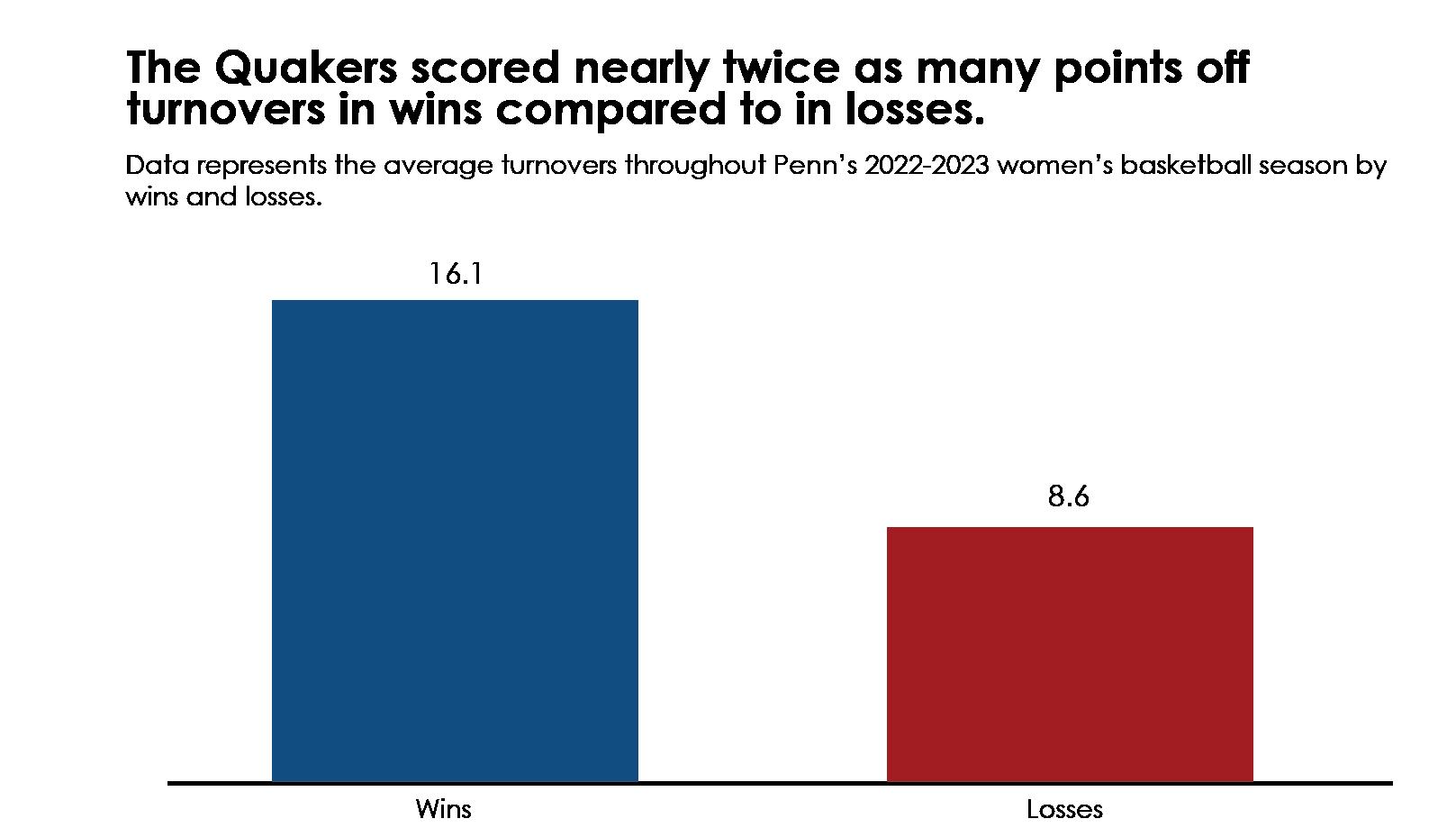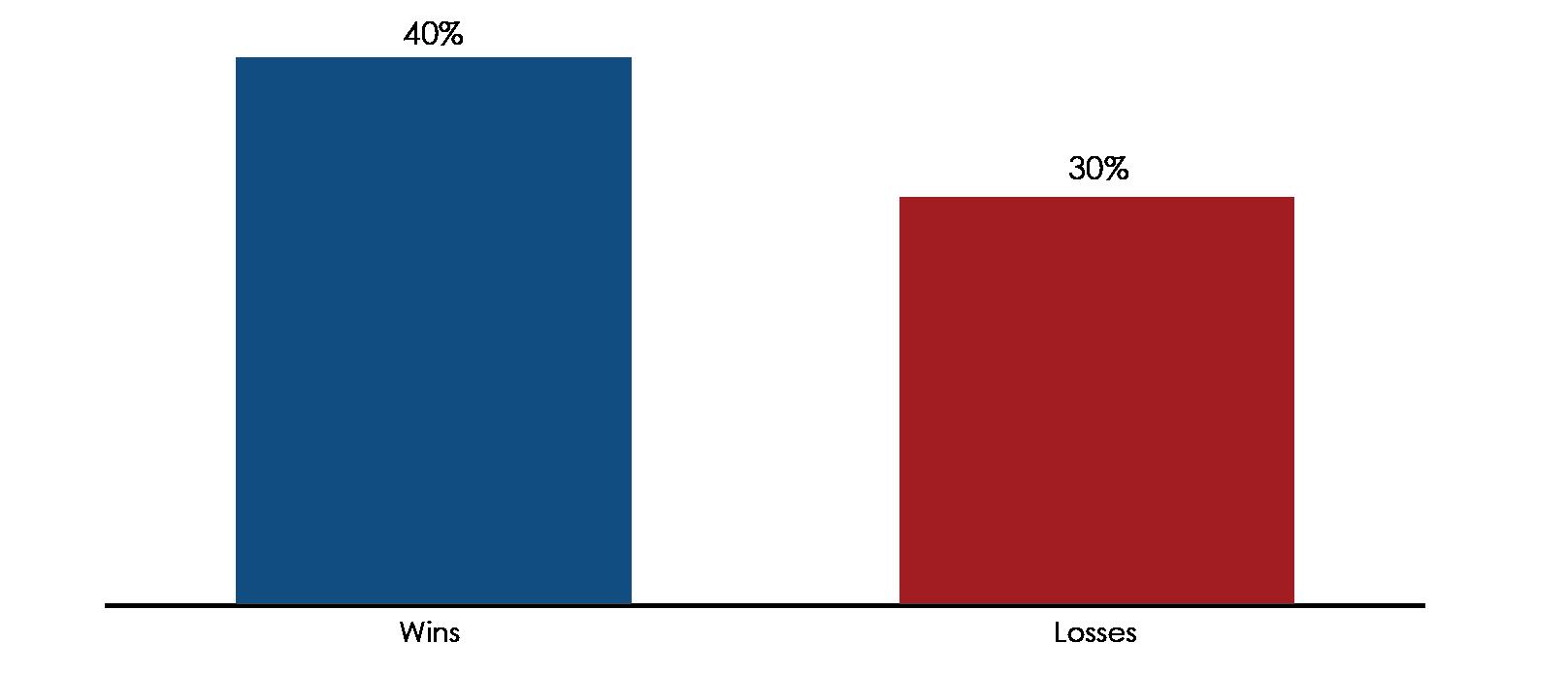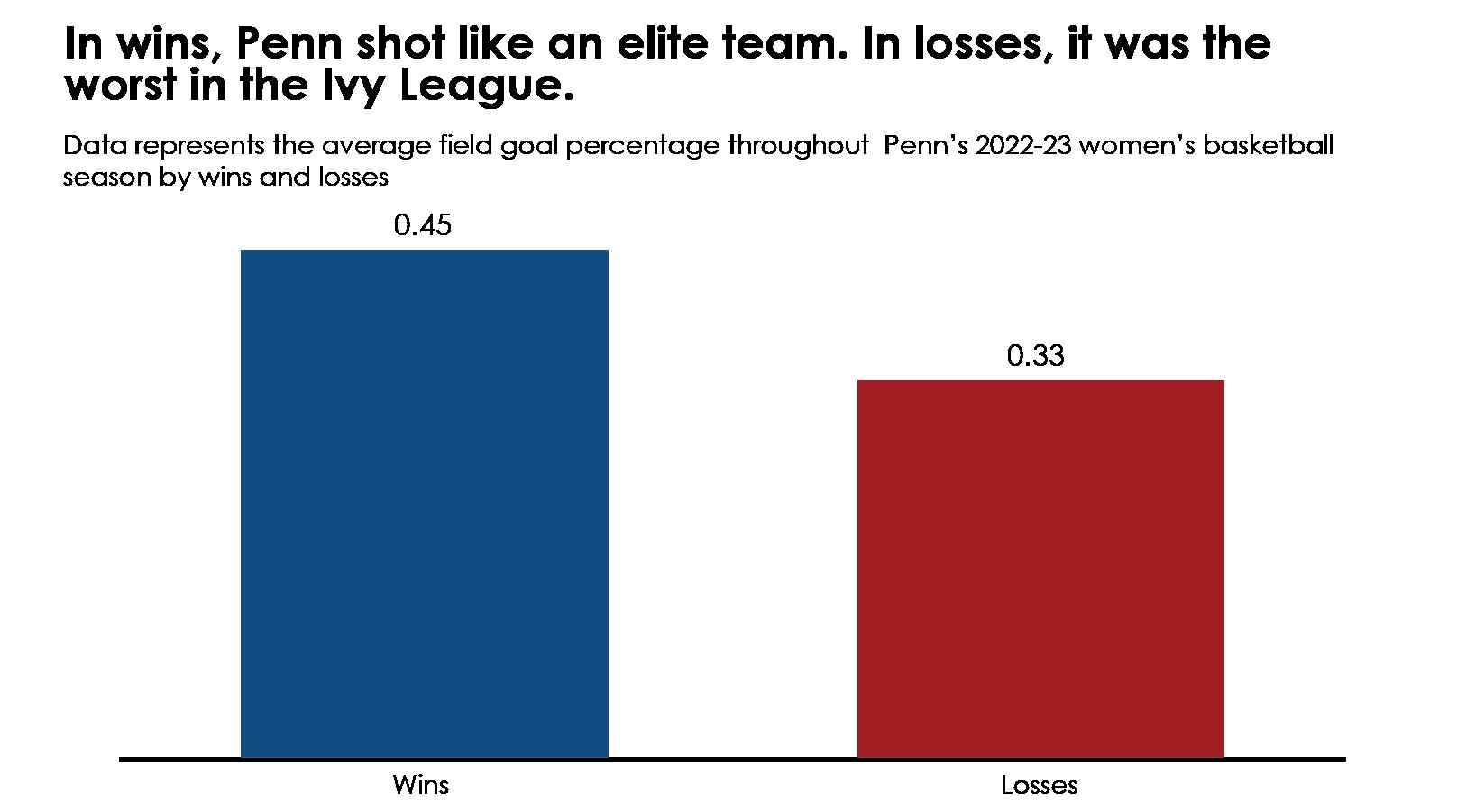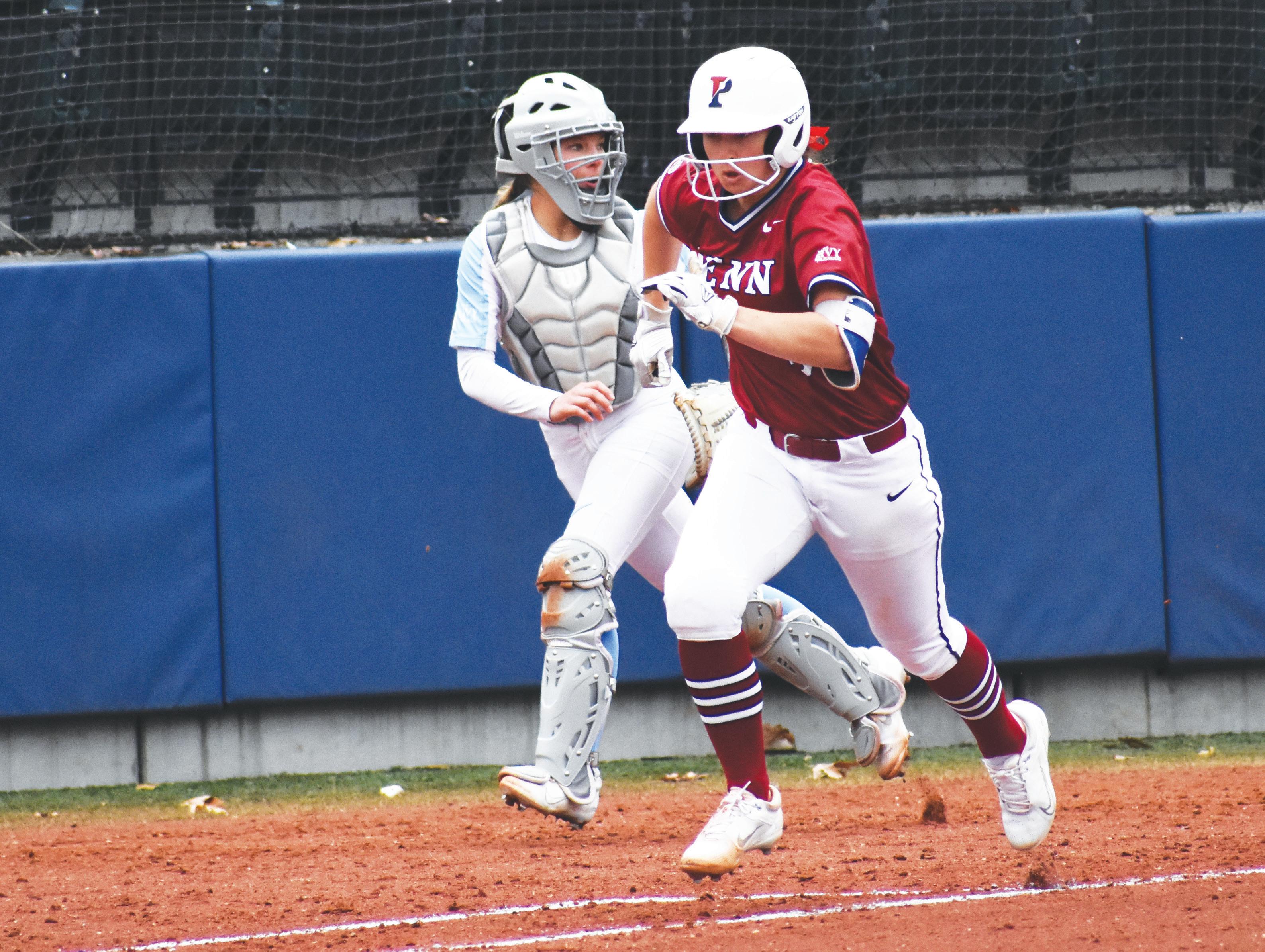Penn law, medical schools rise on U.S. News rankings after opting out of submitting data
This year’s rankings use an updated formula after U.S. News faced criticism
SARA FORASTIERI Senior Reporter
The University of Pennsylvania Carey Law School and Perelman School of Medicine each rose to higher spots in the U.S. News & World Report rankings for the first time since each school stopped submitting data.
Penn Carey Law — previously ranked No. 6 — is tied with Harvard Law School for the No. 4 spot on the preview of the 2023-24 U.S. News Best Law School Rankings. The Medical School was tied for the No. 6 spot last year and is now ranked No. 2 on the 2023-24 U.S. News Best Medicine School Rankings — only behind Johns Hopkins University.
During December and January, both schools opted out of submitting data to the rankings following withdrawals of other top law and medical schools. The schools each criticized the methodology used by U.S. News to create its rankings.
A spokesperson for Penn Carey Law wrote in a statement to The Daily Pennsylvanian that the rankings are "one of several metrics" that are used to assess the school, which continues to evaluate itself "among multiple variables."
"While we await the final rankings and more information on the methodology to be released on April 18, we are gratified to see that U.S. News considered collective feedback and modified its rankings this year, and that our strong, positive student outcomes are reflected in their ranking released today," the spokesperson wrote.
For law schools like Penn Carey Law that did not submit statistical data, U.S. News used figures that schools publicly disclose to the American Bar Association, according to its website. For medical schools that did not share data, U.S. News relied on
See RANKINGS, page 3
Penn community ‘Takes Back The Night’
The annual event — which included speeches, a march through campus, and a survivors’ vigil — protested sexual violence across campus
DEDEEPYA GUTHIKONDA Senior Reporter
Abuse and Sexual Assault Prevention at Penn hosted its annual Take Back The Night event on April 6. The evening included speeches, performances from arts groups, and a march. The event concluded



with a survivor’s vigil. In prior years, the rally was held on College Green, but due to concerns regarding weather conditions this year, it was moved indoors into the ARCH building. Regardless, the event saw a packed turnout including students from
Penn Carey Law and Penn Graduate School of Education
announce new deans
Sophia Lee and Katharine Strunk are both set to start on July 1
CAMELLIA BÙI AND NICOLE MURAVSKY
Staff Reporters
Penn recently named two new deans for the University of Pennsylvania Carey Law School and the Graduate School of Education.
the various groups sponsoring the event and Greek Life organizations.
Take Back The Night is an international campaign

See TBTN, page 7
Lauv set to headline concert for Spring Fling’s 50th anniversary
SPEC annouced that Lil Tjay will open the concert at Penn Park on April 21
IMRAN SIDDIQUI AND KIRA WANG
Senior Reporters
Lauv will headline the concert with Lil Tjay as the opener for the 50th anniversary of Spring Fling this month.
The concert will take place in Penn Park on Friday, April 21 at 7:30 p.m., and will be followed by the Daytime Fling event on Saturday, April 22.
Houston Hall room 313 will be converted to a group study room open to all students.
Penn repurposes Houston Hall space as group study rooms
The new study rooms in the ARCH building and Houston Hall are available to all students
YASH RAJPAL
Staff Reporter
Penn has repurposed rooms in Houston Hall to serve as group study rooms open to all students.

In response to student feedback, Houston Hall room 313 will join ARCH rooms 205, 211, and 311 as GSRs available for students to use under Penn University Life. Students are able to book these rooms through Penn LibCal, and possibly Penn Mobile in the near future.
"The need for space on campus is at an all-time premium," Houston Hall Associate Director of Operations, University Life Space, and Events Management Patrick Faulk said.
Faulk added that Houston Hall and ARCH were ideal places to add GSRs on campus.
“The building of Houston Hall already has many areas for students to sit and study, and this makes the spaces more intimate,” Faulk said.
College first year Alina Zaidi agreed with Faulk that Houston's centralized location makes it useful for students, specifically those in the College.
See GSRs, page 7
Sophia Lee was announced as the next dean of Penn Carey Law on April 4, and Katharine Strunk was announced as the next dean of the GSE on April 6. Both are set to start on July 1.
Deans serve as the chief academic and administrative officers of their schools, reporting directly to the provost of the University. They lead faculty meetings and oversee funding and personnel proposals.
Lee, who has been a law and history professor at Penn since 2009, will succeed Ted Ruger, who will conclude his term as Penn Carey Law's dean on June 30 after eight years in the role, according to an announcement from Penn President Liz Magill. Lee previously served as deputy dean under Ruger from 2015 to 2017.
"Sophia Lee is a proven leader and a consensus builder,” Magill wrote. “A superb scholar and teacher of constitutional and administrative law, she is deeply dedicated to Penn Carey Law and to the people — faculty, staff, students, and alumni — who are central to its work.”
See DEANS, page 8
Penn’s Social Planning and Events Committee unveiled the headliner on their Instagram page on April 3, followed by the announcement of the opener on April 12.
The theme for this year’s Daytime Fling, which is free for Penn students and their guests, will celebrate the event’s 50th anniversary, titled “Golden Spring.” The free event will include various giveaways, food vendors, games, and more at Penn Park.
Lauv — an American singer and songwriter — is best known for his 2017 hit, “I Like Me Better,” and his first album, “How I’m Feeling,” which debuted at No. 16 on the Billboard 200 chart. Lauv has also written songs for Charli XCX, Cheat Codes, and Ellie Goulding. Lil Tjay, an American rapper, is best known for his 2021 song “Calling My Phone” — which peaked at No. 3 on the Billboard Hot 100 — and his appearance on American rapper Polo G’s 2019 single “Pop Out.” He has also collaborated with high-profile artists such as American rappers French Montana and Pop Smoke. This year will be the second in-person event since the COVID-19 pandemic. Last year, Cheat Codes and Flo Milli headlined the concert, and Lil Yachty opened the show.
See FLING, page 8
CONTACT US: 215-422-4640 SEND STORY IDEAS TO NEWSTIP@THEDP.COM ONLINE AT THEDP.COM THE INDEPENDENT STUDENT NEWSPAPER OF THE UNIVERSITY OF PENNSYLVANIA • FOUNDED 1885 PHILADELPHIA, THURSDAY, APRIL 13, 2023 VOL. CXXXIX NO. 13
PHOTOS BY ANNA VAZHAEPARAMBIL AND BILL CHEN
PHOTOS BY ANNA VAZHAEPARAMBIL
Penn pilots co-responder program between mental health clinicians, Penn Police officers
Mental health clinicians will accompanying police officers in the event of mental health crises during some overnight periods
BEN BINDAY Senior Reporter
Penn announced the pilot of a co-responder program designed to improve mental health response on campus.
As a partnership between the Division of Public Safety, the Office of the Associate Vice Provost for University Life, and Wellness at Penn, the pilot program will feature a mental health clinician accompanying a Penn Police officer in the event of mental health crises during some overnight periods. Prior to the launch of the pilot, mental health counselors conducted a virtual assessment during these crises.
“Right now, a student [would be put] on the phone with a counselor, and the officer would do an on-site assessment in conjunction with the mental health counselor on the phone,” Vice President for the Division of Public Safety Kathleen Shields Anderson said. “And then, together, they talk about what the best next steps and referrals are for that student in that moment of crisis.”
Currently, outside of business hours, mental health professionals are only available over the phone. Associate Vice Provost for University Life Sharon Smith said that it was important to improve the quality of care at all hours, not just during the day.
“We have an ongoing community of care,” Smith said. “And we want to view that community of care through the lens of what goes on at 2 a.m., and what goes on at 2 p.m.”
Chief Wellness Officer Benoit Dubé said that there is a difference between a clinician attending in person rather than over the phone, as has been done historically.


“If you’re having a bad day, talking to someone over the phone versus going out to coffee with someone is very different,” Dubé said. “It’s a lot easier for the conversation to evolve faster in person than over the phone because you communicate both verbally and nonverbally.”
Shields Anderson added that it is beneficial for the clinician themselves to examine cues that are not apparent virtually, enabling them to make a faster and more accurate judgment.

“For someone experiencing a true crisis, it’s helpful for our officers to be in the room and see not just what is being said, but also how the person appears, and what is the state of their house, and their room,” Shields Anderson said. “There are other kinds of contextual clues that you can gather
about where the person is mentally from being present.”
The City of Philadelphia launched its coresponder pilot program in the spring of 2021 known as the Crisis Intervention Response Team Program, in which a police officer and mental health professional responded to calls together.
Dubé said that the program, which was introduced at the Board of Trustees meeting in early March, is being piloted with the goal of improving student health and quality of life, similar to previous programs led by DPS and Wellness at Penn.
“The reason why we are piloting this program is in line with what we have done in the past — working on the betterment of our students,” Dubé said.
Dubé, Smith, and Shields Anderson said that the idea for the pilot was independently discussed by the three teams prior to last summer, and the groups came together to coordinate the pilot at the beginning of the 2022-23 school year.
“Our approach to policing has changed our approach to mental health, our responsiveness to mental health, [and] the stigma surrounding seeking help, all from a societal perspective,” Dubé said. “So we’re seizing that moment because there’s a window for us to innovate and do better.”
Shields Anderson and Dubé said that Penn will hire a flexible amount of mental health professionals to staff the pilot. They said that the hiring process should conclude within the next several weeks, followed by training to familiarize the hirees with the culture at Penn and the expectations of their positions.
A now-expired online job listing stated that the hired workers “will work in concert with other emergency response resources to respond to calls for service, conduct socio-clinical assessments, and make appropriate referrals and handoffs to emergency medical care and/or other University and community support services.”

The leaders of the pilot expressed hope that students will see the pilot as a way Penn continues to look out for their best interests.
“We want [students] to recognize that we have their best interests at heart,” Smith said. “We all have an idea of how we want to support our students, and so students across the board, as diverse as they are, will get something of a similar experience.”
Hill House dining hall was found in compliance with the Philadelphia health code two months after being cited for 16 violations.

On April 5, the Philadelphia Office of Food Protection re-inspected Hill and recorded three points of concern regarding food safety violations, compared to the 38 points of concern that the dining hall received earlier this year. The same day, Kings Court English House Dining Hall completed its annual inspection, where six points of concern were recorded.
Of Hill's three violations, two violated "good retail practices," including an inoperable refrigerator and an idle broom and dustpan. The third violation was classified under "foodborne illness risk factors and public health interventions," due to the absence of a sign that reminded employees to wash their hands.
In response to a request for comment, Penn Business Services Director of Communications and External Relations Barbara Lea-Kruger referred The Daily Pennsylvanian to a statement published on Penn Dining's website on April 6. The statement wrote that Hill "successfully completed re-inspection" and Kings Court "successfully completed its annual inspection."
"We appreciate the support and patience that the Penn Community has given us as we addressed issues previously identified and awaited reinspection from
the Health Department," Penn Dining wrote. "We are currently waiting for the Health Department to return to campus to inspect additional cafés. Please know that we remain committed to taking a proactive approach in maintaining a safe and healthy dining environment."
One Penn Dining café awaiting re-inspection is 1920 Commons, which has been found to not be in satisfactory compliance twice this year. This includes a number of both new and repeated violations of city health code observed on March 3. Dining facilities must correct any health violations or risk losing their health license or facing legal action.
Since the DP reported on health code violations and food illness allegations in Penn dining halls on Feb. 21, students have shared conflicting opinions about the quality of Penn Dining’s offerings.

Wharton and Engineering first year Samantha Ouyang said that she was disappointed with Hill's breakfast offerings since the second day of pre-orientation last fall.
“I don't really use my meal plan at all,” Ouyang said. “There's free and better food practically everywhere at Penn, whether it be from clubs, events, or just walking down Locust.”

However, College first year Ahaan Chhatwal disagreed with Ouyang’s assessment.
“I like Hill for breakfast since I don’t need to wait in a line to get a smoothie and can pick up as many as I want,” Chhatwal said. “Plus, you get to make your own omelet with little wait provided you come early.”
None of the observations reported in Hill's most recent inspection were repeat offenses. In a statement provided to the DP in February, Kruger wrote that repeat violations are “what diners should be most concerned about”.
“I always knew our dining halls had health violations, but hearing the news specifically didn't really affect whether I ate there or not, since I already wasn't eating at the dining halls much at all,” Ouyang said.
Ouyang added that the situation was "almost expected," so re-compliance did not make her feel "all that different."
Chhatwal said his dining schedule was similarly unaffected by the violations. He said that KCECH often uses paper plates and plastic cutlery, so he was less concerned about the sanitariness of unwashed utensils there.
“As long as I didn’t fall sick, and don’t know of anyone else who did, the health violations didn’t affect my eating schedule," Chhatwal said.
2 NEWS THURSDAY, APRIL 13, 2023 | THEDP.COM THE DAILY PENNSYLVANIAN Off-Campus Ser vices LIVE DATES THU., MARCH 23, 2023 WED., APRIL 13, 2023 9:00am - 5:00pm EST www.upenn.edu/offcampushousingfair Everything you need to know for your next big move, all online. VIRTUAL HOUSING FAIR YOUR KEY TO OFF-CAMPUS LIVING OPEN MARCH 23 - JULY 20, 2023
Hill House dining hall passes health re-inspection after failing compliance in February The café received 38 points of concern earlier this year regarding its health and safety practices SHAURYA SINGHI Staff Reporter
BY HANNAH SHUMSKY The Philadelphia Office of Food Protection re-inspected the dining hall in Hill College House on April 5, following 16 health code violations.
PHOTO
Xavier Shankle and Ranim Albarkawi elected as UA president, vice president
This election was the first in three years to have in-person debates for UA presidential and vice presidential candidates
NITIN SESHADRI
Wharton junior Xavier Shankle and College junior Ranim Albarkawi will serve as the Undergraduate Assembly’s next president and vice president.

The Nominations and Elections Committee announced the results on April 5. This spring’s election also decided leaders for the 2024, 2025, and 2026 Class Boards.
Shankle won with 771 votes, a 262 vote margin of victory over College junior Chuck Schumer’s 509 votes. Shankle said that he was “overcome with joy” after finding out that he secured the presidency.
“It was a joyful moment and very humbling moment to know that students had confidence in me to be UA President for the next year,” Shankle said.
Shankle said that he looks forward to serving as a bridge between students across campus and University administrators in this role.
“A big part of my tenure will be working to amplify student voices,” Shankle said. “My goal is that [student
Bring-Your-Own restaurants are a staple of the Penn experience. Which one is the cheapest?
The DP analyzed 24 popular restaurants across University City and Center City
SNEHA PARTHASARATHY
Reporter
Philadelphia’s Bring-Your-Own restaurants are a staple of the Penn student experience. The Daily Pennsylvanian set out to find out which BYO is the cheapest.
The DP’s analysis examined the menus of 24 BYOs across University City and Center City, analyzing the prices of dinner entrees and appetizers in each restaurant to determine which are the cheapest.
According to the analysis, the median menu dish price — excluding sides, drinks, and desserts — averaged to be $19.39 across all 24 restaurants. A majority of restaurants analyzed had median dish prices between $15 to $22.
Because of Philadelphia’s strict liquor licensing policy, many restaurants classify themselves as “BYOs,” allowing customers to purchase and bring their own drinks when dining. These BYOs serve customers without checking their identification information, assuming all members of the party are over 21.
Many clubs at Penn host events and socials at BYOs, which often accept reservations for large groups. However, Philadelphia’s extensive BYO scene leads to a significant variety in the prices of menu items across different restaurants.
Mizu Sushi Bar had the cheapest median menu item at $10.99, while Pumpkin BYOB, which only offers a prix-fixe menu at $55, was the most expensive. After Pumpkin BYOB, Figs had the highest median dish

groups] will now find it much easier to have their concerns addressed and understood.”
Albarkawi won her race with 496 votes, a 34 vote margin of victory over College sophomore Hannah Liu and 202 vote margin of victory over College sophomore
Maya El-Sharif — Schumer’s running mate.
“I’m extremely grateful,” Albarkawi said. “Xavier and I are both extremely grateful … you don’t typically see people like us in these positions.”
As UA vice president, Albarkawi will chair UA Steering — a group that comprises of 41 student organizations. In this role, Albarkawi said she is working to ensure collaboration and relationship-building between student groups.
As a Philadelphia native, Albarkawi said that her life experiences bring an important perspective to University decision-making.

“[I will] make sure that we are making decisions that are conscious of Philadelphia and the impact that Penn
has there,” Albarkawi said. “[I will] continue to work with administration and student groups to ensure that what we are doing is socially responsible.”
Students re-elected Wharton and Engineering junior Toyosi Abu as 2024 Class Board president, after he ran unopposed. College sophomore Sri Pinnamareddy was elected as 2025 Class Board president, also running unopposed, after serving as a Class Board 2025 College chair this year. Wharton first year Vedika Jawa was reelected as 2026 Class Board president, receiving 509 votes compared to Wharton first year Bruno Basner’s 274 votes.
All positions for the 2024 and 2025 Class Board were uncontested except Wharton Class Chair for the 2025 Class Board. Wharton sophomores Shivam Sha and Gabriella Gibson both received 35 votes — meaning a runoff will take place to decide the winner.
Last week, the NEC hosted two debates where the UA presidential and vice presidential candidates explained
their platforms and plans for the roles. These were the first presidential and vice presidential debates in three years, according to Engineering sophomore Yousef Elyoussef, the NEC’s vice chair for elections.
Elyoussef said that the debates helped students to vote based on the candidates’ platforms rather than on their popularity.
“After each debate, we saw a surge in votes, which was great because it truly showed that people were waiting to vote, people were ready to listen to these potential candidates, and [people were] voting based off of their platforms and what they want to do for Penn,” Elyoussef said.
This year was also the first to have a mandatory diversity retreat for candidates, a two-hour session moderated by College junior Oumy Diasse, the chair of the United Minorities Council, and College sophomore Elizabeth Ramos, the chair of Internal Affairs of the Latinx Coalition.
The session included workshops, group activities, and reflections that helped candidates and current student government leaders to identify the identities of themselves and of others, as well as whether Penn Student Government was diverse and approachable enough, according to Elyoussef.
“We think it’s really important that Penn Student Government starts to have a … more approachable reputation on campus,” Elyoussef said. “We thought that this diversity retreat was really important to help ensure that candidates understand the importance of diversity and inclusion not just in student government, but at all of Penn.”
Elyoussef said that, across the board, candidates in this election were very professional and wanted to run campaigns based around issues they cared about.
“This was a great election, when it came to candidate morale,” Elyoussef said. “I feel like candidates were excited to run … it felt like a much less cutthroat vibe than I feel like elections usually have, and that even students who were going against each other for a certain seat, were very, very professional with each other.”
RANKINGS, from FRONT PAGE
data from statistical surveys and public metrics from the National Institutes of Health as part of its new methodology.
In addition, U.S. News wrote on its website that the weights and measures provided for each aspect were reevaluated.
For law schools, the new methods include an increase in the weight of the bar passage rate, employment rates after 10 months, and the inclusion of the “Ultimate Bar Passage.” It also gives less weight to reputation surveys, LSAT/GRE scores, and GPAs.
price at $25.50, with other Center City restaurants, like La Viola Ovest, also ranking high.
“La Viola is a little more upscale compared to the BYOs on campus, so it’s a nice spot for a date or fancy dinner with friends,” College sophomore Ayesha Patel said.
Patel added that La Viola is a popular spot to eat before sorority date nights due to the quality of the food and the restaurant’s atmosphere.
The analysis found that popular Penn locations, like Ken’s Seafood Restaurant, Pattaya Grill, and Ochatto, were consistently in the middle of the price range.
“The classic choice is Don Barriga, but Ochatto is the nicest experience,” Engineering junior Vikram Singh said. “[But] my favorite BYO on campus is Virasat Haveli. It is underrated because people don’t know it’s BYO, or that it exists in general. It’s pretty expensive, but the food is good.”
BYOs closer to Penn tended to be less expensive and offered more extensive menus than restaurants in Center City. Italian and American cuisines tended to be more expensive, while Asian, Mediterranean, and Mexican food had lower median dish prices.
“I like Cilantro,” College sophomore Jack Burgess said. “Although it is not as close to Penn, I think it’s cost-effective and very fun.”
For Burgess, one of the highlights of Cilantro Mediterranean Cuisine is that the restaurant offers a discount if customers leave them a review before they leave. He also cited the friendly staff and generous
portions as additional reasons why he enjoys the further-away BYO.
Other Asian restaurants near Penn, like Thai Singha House and Pattaya Grill were also on the cheaper side.
“Thai Singha is so convenient and has relatively cheap prices,” College and Wharton sophomore Yared Zegeye said. “Even though it’s small, if you reserve ahead for a group, it’s a great, intimate space.”
Burgess also thinks that Ken’s, which serves Chinese food, is a “Penn classic,” citing the restaurant’s $20 per person price and large portions as reasons why the BYO is popular. “It is a right of passage for Penn students,” he said. College and Wharton sophomore Amaan Omer prefers Japanese restaurant Ochatto and Thai restaurant Pattaya, citing their quality food and location as reasons why he frequents the BYOs.
The analysis also examined the most and least expensive items on each BYO’s menu. Of the 24 restaurants, maximum dish prices ranged from $18.99 at Mizu Sushi Bar to $55 at Pumpkin BYOB. On the flip side, Mizu Sushi also had the minimum dish price with $2.50 for miso soup, while Luna BYOB had the highest minimum dish price with a $14 Caesar salad, after Pumpkin BYOB’s $55 three-course meal.
Omer emphasized that compared to other social events, attending BYOs also has options for students who, like him, do not drink.
“While some people do go to BYOs for the drinks, I go for the community and people,” Omer said.
For medical schools, the official changes to the methodology include an increased weight on faculty-to-student ratios, the addition of NIH grants to assess research quality, and a decrease in the weight of reputation surveys and MCAT and GPA scores. U.S. News also stated that it will continue to incorporate data collected in the previous two years.
The full methodology will be available on April 18 and “prioritizes measures that identify clear and transparent outcomes for prospective students,” according to the website.
In this year's formula for law schools, factors such as at-graduation employment rates and debt are no longer included. Nonetheless, U.S. News will continue to incorporate data such as program offerings, financial aid, and graduate salaries that were reported directly over the last two years.
Similar to its hopes for law school rankings, U.S. News said that it hopes to empower prospective medical students with the knowledge to ensure they choose the correct school.
“The USNWR measures encourage the acceptance of students based upon the highest grades and test scores,” Dean of the Medical School and Executive Vice President of the University of Pennsylvania for the Health System J. Larry Jameson wrote when the school withdrew from the rankings. “Yet, we strive to identify and attract students with a wide array of characteristics that predict promise."
3 NEWS THURSDAY, APRIL 13, 2023 THEDP.COM | THE DAILY PENNSYLVANIAN
Senior Reporter
PHOTO BY JESSE ZHANG College junior Ranim Albarkawi (left) and Wharton junior Xavier Shankle (right).
Senior
PHOTO BY ABHIRAM JUVVADI Mizu Sushi on 40th street had the cheapest median menu item out of 24 BYOs across Philadelphia.
How often do you visit Chinatown?
You might be a regular at a number of Chinatown businesses: Kevin’s for haircuts, Ken’s for karaoke, SpiceC or Nan Zhou for hand-drawn noodles, Chubby Cattle for hot pot, Penang for Malaysian food, KC or Mayflower for pastries, Heng Fa for groceries … this list could go on forever. Maybe you’ve come to Chinatown during Lunar New Year to watch the Philadelphia Suns perform Lion Dance in the street, or during the Mid-Autumn Festival for the delicious food, games, and performances.
What if we told you that the existence of Chinatown is under threat from an 18,500-person capacity basketball arena? What if we told you that the project’s ensuing destructive demolition and construction would push the Chinatown community, its businesses and residents, to the brink of extinction?
We are the Students for the Preservation of Chinatown, a coalition of college students in the Philadelphia-area dedicated to fighting against the proposed construction of a new 76ers arena right next to Chinatown. Our founders and leaders grew up going to Chinatown daily. We celebrated our most important life events and memories in Chinatown. We went to Chinatown’s annual Mid-Autumn Festival as small children, and I would only stop complaining and crying once my dad lifted me up on his shoulders so I could see the lion dancing of the Philadelphia Suns. Birthday
parties, graduation celebrations, and holidays were all spent in Chinatown. We greeted elders as “grandfather” and “grandmother,” “auntie” and “uncle.” Our community nurtured us. It taught us how to value our relationships, honor our elders, and practice our culture. Chinatown is a thriving community. Over 2,000 people live here. There is low-income housing, a senior housing complex, apartments, and houses. There are over 120 businesses, including supermarkets, hair salons, and restaurants. This community also relies on its three churches, a Buddhist Temple, health clinics, daycare centers, and elementary schools. And now, three multi-billionaires aim to force them out. We’ve fought off many large predatory developments to preserve our growing community, and we cannot afford to lose this fight either. Penn has close ties to the three developers, who all have a record of predatory development. David Adelman, the face of 76 Place, is the CEO of Campus Apartments and sits on the Penn Medicine Board of Trustees. Campus Apartments and Adelman have heavily contributed to the legacy of displacement and gentrification of the Black Bottom, a once thriving Black, working-class neighborhood that has now been removed and renamed as University City. David Adelman has continued this pattern across the country, building apartments for college
students and then charging egregious rent prices to make his billions.
Josh Harris, co-owner of the 76ers and another developer behind 76 Place, graduated from Wharton and sits on the Wharton Board of Advisors. He cofounded Apollo Global Management, a private equity company that aided in the shutdown of Hahnemann Hospital, an institution that served predominantly underinsured Philadelphians and was the closest thing Philadelphia had to a public hospital.
David Blitzer, the other co-owner of the 76ers and the last developer behind 76 Place, also graduated from Wharton and sits on the Penn Board of Trustees and the Wharton Board of Advisors. He is the Global Head of Tactical Opportunities at the Blackstone Group — a firm that has been accused by the United Nations of violating human rights around the world and contributing to the “global housing crisis.” Adelman, Harris, and Blitzer are people who make decisions for our University and are directly invested in the destruction of Chinatown. As students who care deeply about Chinatown, we are concerned about our University’s deep ties to developers that continue to make billions off of destroying lowincome communities. As students of the University, we say no to using our tuition dollars as the bridge for Penn to remain business partners with deeply unethical developers.
On Nov. 18, we held our first protest, marching from Penn’s campus to Campus Apartments’ office. We’ve emailed the administration expressing our concerns about the University’s ties to the arena proposal. On Feb. 22, we spoke directly in front of President Liz Magill, expressing these same concerns. On March 3, we attempted to deliver our demands to the Board of Trustees.
We are asking Penn to cut ties with the three developers behind 76 Place and their corporations, end the move to privatized student housing, reevaluate the Wharton curriculum by requiring its students to take courses that develop an understanding of international human rights standards as a basis for practice, and issue a statement in support of Chinatown against the arena. After a few remarks to administrators inside, we took it to the streets outside, meeting many students, community members, and Chinatown residents in a rally.
Some people would object to
seemingly harsh action against the University. We wish that we did not have to do this, either. We wish we had all the time in the world to fully exhaust the proper channels despite the bureaucracy. But Chinatown does not have time.
76 Devcorp is planning to complete requests for city approval for the project by this fall. Chinatown is just recovering from the devastating COVID-19 pandemic and a spike in violent anti-Asian hate crimes. Our youth are facing the loss of a community that they can grow up in. Our elders are facing the loss of their longtime homes that they have felt safe in. Our community is facing the loss of everything they have built since Asian immigrants in Philadelphia were forced into the area we call Chinatown 150 years ago.
We care deeply about our community. We would not be who we are today if not for Chinatown. The generations before ours fought to preserve this beloved community for us. We now have a responsibility to return the favor, to make sure that our elders have this community to grow old in, and that the generation after us can have a place in which to grow up and connect with their culture.
When you see us protesting, know that we are fighting for our community’s right to exist. The privilege of our education requires us to use our voices to fight for those who are never heard: the non-English speaking, the workers, and the elders. As students, we will continue to demand that this university practices ethical leadership. We demand that Penn cut ties with people who destroy communities, and who play with communities’ housing and land as commodities to increase wealth regardless of who is harmed.
Next time you go to Chinatown, look up and look around. See the community as we see it — a home, a cultural center, a spiritual center, a carefully tended collection of relationships and memories. We are more than a place to eat — we are a home, and we will fight.
STUDENTS FOR THE PRESERVATION OF CHINATOWN is a coalition of college students in Philadelphia and the surrounding Philadelphia area dedicated to fighting against the proposed 76ers arena next to Chinatown. They can be reached at spocphilly@ gmail.com and on Instagram, @ spocphilly.

In 2021, Philadelphia’s District Attorney Larry Krasner, caught flack for his statements about the city’s crime spike. “We don’t have an issue of lawlessness,” Krasner said. “We don’t have a crisis of crime. We don’t have a crisis of violence.” The statement came in the midst of a record year for homicides in Philadelphia, a number that has skyrocketed in virtually all major American cities since the beginning of the COVID-19 pandemic in 2020. Krasner was swiftly accused of downplaying the collective experience of individuals who have lost loved ones to violence. In an op-ed for The Philadelphia Inquirer, former Philadelphia Mayor Michael Nutter called Krasner’s words, “some of the worst, most ignorant, and most insulting comments I have ever heard spoken by an elected official.”
Following public backlash, the DA released a statement, admitting his words were “inarticulate,” and that Krasner had intended to say that overall crime in Philadelphia was declining, even though homicides and gun violence had increased.
Despite Krasner’s retraction, Nutter appeared on the Michael Smerconish show to admonish the DA’s leadership and his “soft-on-crime” approach. In response to a social media post that criticized Nutter for unfairly blaming the DA for Philadelphia’s crime problem, Nutter said, “I’d say that your job, as a district attorney, is to prosecute people who commit crimes. There are any number of systems that have their issues. What I’m asking, in Philly at least, is that the DA prosecute people.”
Policing, prosecution, and incarceration have indeed changed dramatically in Philadelphia since Krasner assumed office. In the last five years, the DA has shifted resources away from prosecuting low-level offenses, reduced the use of cash-bail for petty crimes, instated a conviction integrity unit to monitor cases where there may have been a wrongful conviction, and created a database to review allegations of police misconduct. Under Krasner’s leadership, Philadelphia’s prison population has plummeted, falling from 6,604 in May 2017 to 4,417 in February 2023.
his
Krasner has garnered a large base of Black and Brown supporters. Still, some Philadelphians argue that the DA’s office is not aggressive enough when it comes to prosecuting certain crimes.
Living within the boundaries of Penn’s campus — more often than not called the “Penn Bubble” — it is easy to forget the realities that hound this city just beyond college walk. While the University is often encouraged to deepen its relationship with the surrounding community, we as students also have a civic obligation to Philadelphia. Your Penn experience is not complete until you’ve educated yourself on the issues that plague this city. Your education is not complete until you’ve fulfilled your responsibility to better the lives of those around you. One issue that students should concern themselves with is mass incarceration.
Whether or not you agree with Krasner’s approach to the problem of mass imprisonment, you cannot, in good faith, argue that Philadelphia’s penal system is not uncharacteristically punitive. Of all the major United States cities, Philadelphia has the highest incarceration rate per capita.
Solitary confinement was actually invented here. In 1787, the Quaker-aligned Philadelphia Society for Alleviating the Misery of Public Prisons came to the conclusion that hardened criminals could find salvation if they were kept apart from negative influences — other inmates. This form of incarceration came to be known as the Pennsylvania System, a model that was soon adopted by the rest of the country. By the mid-20th century, Philadelphia’s prison population steadily increased, and the conditions of the jails deteriorated.
In 1970, inmates at the overcrowded Holmesburg Prison rioted after being forcefully subjected to inhumane dermatology experiments, led by Albert Kligman, a researcher here at the Penn In a 1966 interview with Press, Kligman famously recounted his experience entering the congested Holmesburg Prison for the first time: “All I saw before me were acres of skin. It was like a farmer seeing a fertile field for the first time.”
In 2022, the city finally apologized to the victims of the Holmesburg Prison experiments. Even so, inmate living conditions haven’t improved significantly
since the riots. Following the pandemic, penitentiary conditions worsened as the demand for resources grew. Due to the filthy, unclean conditions of Philadelphia’s prisons, the city has been involved in multiple class action lawsuits since 2020.
Equally disturbing to the overcrowded, decrepit state of Philadelphia prisons is the fact that private corporations earn billions annually from mass imprisonment. One of the corporations profiting from the prison-industrial system is Aramark. Based in Center City, Aramark is the largest provider of food services to U.S. prisons, and has a financial incentive to maintain high incarceration rates. The corporation was linked to the American Legislative Exchange Council, a team of lawmakers and business leaders famous for drafting “Truth in Sentencing” legislation and mandatory minimum sentences — laws that contribute to the growth of the American prison population.
While Aramark likes to brag about its economic contributions to Philadelphia as one of the city’s largest employers, informed constituents recognize that this marginal economic growth comes at the expense of freedom for marginalized people. Some Philadelphians have begun rejecting private prison profiteering by protesting peacefully at the corporation’s headquarters, and refusing to purchase food at sports venues that subcontract the company’s catering services.
Ultimately, recognizing our influence and giving back to the greater community is a crucial part of our Penn experience. As students and beneficiaries of Philadelphia, we have a civic duty to make the city a better place than when we arrived. Through a number of organizations, including the Pennsylvania Prison Society, Vera Institute project, and ACLU Pennsylvania, Penn students can become active members in the fight for prison reform and rehabilitation.
JULU NWAEZEAPU is a College sophomore studying behavioral and computational neuroscience from Chicago. Her email is julunwae@sas. upenn.edu.

4 THURSDAY, APRIL 13, 2023 | THEDP.COM THE DAILY PENNSYLVANIAN
work
tackle mass
combat
justice
As a result of
to
imprisonment and
prejudice within the criminal
system,
OPINION The Land on which the office of The Daily Pennsylvanian stands is a part of the homeland and territory of the LenniLenape people, known to the original Indigenous people as “Lenapehoking.” We affirm Indigenous sovereignty and will work to hold The Daily Pennsylvanian and the University of Pennsylvania more accountable to the needs of Native American and Indigenous people. LAND ACKNOWLEDGEMENT JOJO BUCCINI Deputy Design Editor ESTHER LIM Deputy Design Editor SOPHIA LIU Deputy Design Editor ABHIRAM JUVVADI News Photo Editor BENJAMIN MCAVOY-BICKFORD Opinion Photo Editor SAMANTHA TURNER Sports Photo Editor EMILY CHANG Deputy Opinion Editor VINAY KHOSLA Deputy Opinion Editor YOMI ABDI Deputy Opinion Editor DIAMY WANG Deputy Copy Editor CHARLOTTE BOTT Deputy Copy Editor MADDIE PASTORE Deputy Copy Editor RILEY NEEDHAM Deputy Copy Editor ELEANOR GRAUKE Deputy Copy Editor WALKER CARNATHAN Deputy Sports Editor JESSE ZHANG President EMI TUYẾ TNHI TR ẦN Executive Editor IMRAN SIDDIQUI DP Editor-in-Chief LILIAN LIU Design Editor COLLIN WANG Design Editor JARED MITOVICH News Editor MOLLY COHEN News Editor SAYA DESAI Assignments Editor ALLYSON NELSON Copy Editor JULIA FISCHER Copy Editor ANNA VAZHAEPARAMBIL Photo Editor CAROLINE MAGDOLEN Opinion Editor KIRA WANG Social Media Editor CALEB CRAIN Sports Editor ALEXIS GARCIA Sports Editor GEORGE BOTROS Video Editor RIANE LUMER Podcast Editor MATTEO BUSTERNA Diversity & Inclusion Director JOSH TRENCHARD Business Manager GRACE DAI Analytics Director MADISON SMITH Marketing Manager KRISTEN LI Product Manager AKANKSHA TRIPATHY Consulting Manager ZAIN QURESHI Finance Manager 139th Year of Publication Have your own opinion? Send your letter to the editor or guest column to letters@thedp.com. Editorials represent the majority view of members of The Daily Pennsylvanian, Inc. Editorial Board, which meets regularly to discuss issues relevant to Penn’s campus. Participants in these meetings are not involved in the reporting of articles on related topics. LETTER SUBMISSION THIS ISSUE’S TEAM THIS YEAR’S BOARD Opinion Stand with Chinatown against the 76ers
proposal GUEST COLUMN | Penn’s ties to 76 Place’s developers cannot go unaddressed PHOTO COURTESY OF RODNEY ATIENZA Members of Students for the Preservation of Chinatown protest the proposed Philadelphia 76ers arena in Chinatown. The dark underbelly of Philadelphia’s prison system NO NAME IN THE STREET | Pennsylvania is a national leader in incarceration — here’s why Penn students should care
arena
Philadelphia City Hall on Oct. 15, 2022.
PHOTO BY ALEX BAXTER
Is Penn the New Happy Valley?
A RIANE AMONG MEN | Photos on Instagram are an inaccurate indicator for college experiences

Last week, Penn President Liz Magill reposted a study deeming Penn among the top 10 happiest universities nationwide. Penn placed first in the Keystone State, thereby defeating Penn State University also known as the “Happy Valley” dating back to the 1930s. But wait — there’s a catch.
The study, conducted and published by Resume. io — a company that helps job seekers build resumes predicated on rules and structures — aimed to explore which institutions of higher education contained the most cheerful students. First, the software perused Instagram posts from universities' geotagged locations. Then, it assessed them on a happiness metric with Amazon Rekognition API, an artificial intelligence facial emotion recognition tool. The sampling pool was limited to only public accounts. Essentially, the study evaluated happiness based on external appearance.
At face value, the article seems intriguing with its clickbait headline, but after digging deeper, the unreliability surfaces immediately.
Not only does the study contain flawed methodology by discerning University happiness through social media, but it also speaks to the larger problem of perpetuating Penn Face and inauthenticity. It is harmful to circulate this study without investigating its validity. By reposting it, administrators are only feeding into Penn Face and participating in it themselves.
As president of the University, Magill must be in tune with the mental crisis here. Yet, she hastily reposted this study as a performative act to present Penn’s mental health in a better light. If she actually read it, she would see its overt flaws. Instagram, and all forms of social media for that matter, are precisely curated highlight reels. People tend to frame and glamorize their feeds with positivity while omitting the realities behind the scenes, parallel to how the concept of Penn Face functions.
“It makes sense that we’re deemed a happy college if the metric Resume.io is using is running AI on
our Instagram posts to see if we express happiness
— social media is incredibly curated and Penn Face is always prevalent,” College sophomore Yash Mahajan said. “Not many people would post unhappy pictures on a public social media page.”
Oftentimes how people represent themselves on social media bears no resemblance to their true lives.
In 2018, a Twitter account asked for people to share pictures in which their photos projected themselves in a way that did not encapsulate the difficult times hidden behind their smiles. With thousands of comments highlighting this phenomenon, this post was just one example illustrating how smiles in pictures are a futile metric for perceiving happiness.
An additional limitation to the study is considering non-student photos within the sample. While navigating their future academic paths, visitors are attracted to universities to obtain a first-hand glance of a college’s atmosphere and offerings. After doing so, they may take pictures and share them on social media while tagging the location of the college. This is a critical factor distorting the accuracy of this experiment — pictures of non-students could skew outcomes for schools, especially Ivies which receive eager visitors.
Further, confounding variables such as a school’s social culture may also influence the results. Known as the Social Ivy, “Penn, which has a reasonably strong party scene, would probably have more really happy faces posted by students during social events, but schools that are a little bit more low-key would have fewer of those even if the student body is happier most of the time,” Wharton sophomore Aneesh Karuppur said.
Although Penn contains well-rounded students, “all this really means in practice is that there are even more angles from which pressure on students gets compounded. That stress carries through to the social interactions students have around campus,” College sophomore Sajan Srivastava said. Thus, it makes sense that this study was reposted in that “top schools like Penn would love to [appear] that their students have fun
despite the rigor of their coursework.”
Srivastava mentioned, “I highly doubt that any AI model is intelligent enough to look past the smiles and see what happiness truly looks like in non-candid photos of students; there’s a reason that just about everyone at Penn has either heard about the so-called ‘Penn Face’ or borne it.” In this scenario, failing to acknowledge sampling and experimental errors serves as a misrepresentation to prospective applicants and minimizes the lived experience of current students. Despite its illegitimacy, it is unsurprising that this study was reposted as a marketing strategy.
As Mahajan noted, “Posting that this is one of the happiest schools in the country sets us back in destigmatising Penn Face.” Administrators, and particularly the president of this University, cannot continue to give

strength to this term.
Overall, this study merely shows which universities boast the highest number of faces detected as ‘happy’ between the restricted timeline between December 2022 and January 2023. Equating social media with human emotions is simply fallacious. Instead, the study’s misleading title should be revised to qualify its findings and say, “Universities Tagged with the Highest Proportion of Smiles on Instagram,” because that’s all it truly revealed: a picture perfect perception.
Penn must become need-blind for international applicants
THE AIYER ASSESSMENT | International applicants: beware of Penn-y pinching
ensure that all applicants are assessed equally, regardless of their financial status.
Moreover, unlike most domestic students, international applicants often find themselves at a perplexing crossroads. They may request aid while applying to Penn, knowing that it will substantially lower or even altogether remove their chances of acceptance. Or, they may find other ways to pay their tuition, usually by taking out hefty private loans that most will spend the rest of their lives paying back. Even with an Ivy League education, it's incredibly difficult to pursue the coveted American Dream under the weight of almost $85,000 worth of student loans.
Dartmouth’s undergraduate population is admittedly smaller than Penn’s by about 36%. Yet, with slightly fewer students to support, Dartmouth has a significantly smaller endowment at only $8.1 billion. This is 61% smaller than Penn’s. Even with their notably tighter budget, Dartmouth went need-blind for international applicants during the most recent application cycle.
“We are committed to making a Penn education accessible and affordable for all students, regardless of your financial circumstances.”
Those are the exact words that Penn uses to address its applicants’ questions about the cost of tuition. Of course, they fail to mention that their need-blind policy only applies if you are from the United States, Canada, or Mexico. For everyone else, get ready to shell out almost $85,000 USD a year!
Only seven universities in the United States are currently need-blind for international students: Amherst College, Bowdoin College, Dartmouth College, Harvard University, Massachusetts Institute of Technology, Princeton University, and Yale University. It is time for Penn to join these institutions by finally becoming need-blind to all applicants.
When international students apply to Penn, they are forced to disclose that they are in need of financial aid, a factor that is considered when their
application is reviewed. This is not a small factor, either. Penn is incredibly transparent in regards to the hurdles that international applicants will inevitably face. They “will be in competition for very limited funds” and, on average, Penn gives out only 100 aid awards a year.
In other words, a Penn education is not accessible and affordable for all students, as they so proudly claim. This is an issue on both an individual and university level.
For the individual, it’s simply unfair to set up financial fences. Penn is choosing to reject certain applicants that, while a good fit for the school, are unable to pay full tuition. In fact, they have explicitly stated that, due to their financial aid policy, “some otherwise qualified candidates will not be admitted.” This opposes the exact reason why the University takes part in need-blind admissions for domestic students in the first place; it is a way to
On the university level, Penn is hurting itself too. International and low-income students offer unique perspectives and experiences to the institution. Without them, the school would be composed of the same homogeneity that permeated this institution a century ago. Many of us came to Penn seeking this diversity, and by establishing barriers to applicants who provide it, the University is doing a disservice to domestic students.
Funds for financial aid are derived from Penn’s endowment, which is currently $20.7 billion. On average, Penn spends about $224 million on all aid packages; yet, they only commit $10 million yearly for international students. In other words, only about 4% of all aid funds are allocated to a group that makes up 13% of the student population. With such a hefty endowment, why exactly is Penn still need-aware for international applicants? According to Student Registration and Financial Services, this can be attributed to Penn’s larger undergraduate student population and smaller endowment, in comparison to other need-blind universities. However, let’s dive a little deeper into said peer institutions.
Digital schoolwork is ruining our work-life balance
ALLISON’S ATTITUDE | Deadlines should align with synchronous instruction, not arbitrary dates and times

Teaching and higher education are now completely reliant on students’ use of technology. It’s a rare occurrence that material is shared with students in physical form, and sites such as Canvas and Google Classroom have become educational staples. There are many benefits to this model of higher education: It’s much easier to only keep track of a computer for all classes, rather than having a binder full of papers across many different classes. It provides streamlining abilities to students that are unparalleled and substantially cuts prices associated with purchasing physical organization tools and materials.
However, a sizable trade-off of education becoming so technologized is that work now bleeds too much into our personal lives. There’s less separation between work, school, and personal life when technology serves as a medium to complete tasks related to all three. The same device we use to complete homework, schedule interviews, and do research also doubles as a tool of entertainment and a social outlet.
There’s never a clear time separation between the two, either. After dinner with friends on a Friday night, we may have a deadline for an essay at midnight. These arbitrary times that don’t align with the time we allot for school or work related hours extend the professional and educational day into our personal and leisure time.
A New York Times article describes a joke about wanting to stop looking at the “BAD SCREEN” to look at the “GOOD SCREEN.” The author further explains that “the ‘bad screen,’ in this case, is the work computer on which one does dreary things like scheduling meetings and compiling spreadsheets. The ‘good screen’ is the personal computer, on which one does fun things like scheduling meet-ups
with friends, at bars, restaurants or at other people’s houses.
The irony of this joke is that for students, the “bad screen” is only one click away from the “good screen.” Thus, the staunch line that used to separate work lives (and in our case as students, educational) and personal lives is no longer what it used to be. I can’t help but be jealous of the reality that existed only 20 or 30 years ago: leaving the physical workspace meant being unreachable until you returned.
One might argue, rightfully so, that technology is good in this way. Some justify technology bleeding so heavily into our personal lives in the name of productivity. After all, we must have become more productive with technology augmenting our abilities to research and accomplish tasks. But, how much more productive does technology make us, when it’s leeching away at our hours that used to be reserved for personal leisure and regeneration?
Although technology’s role in work-life balance is modern, the central question of balancing work and leisure has been salient since Aristotle’s time. On one hand, Aristotle describes work as being extrinsically good: good for the purpose of others and society as a whole. On the other hand, Aristotle describes leisure as being intrinsically good: good for us personally, to lead richly fulfilling and, hopefully, happy lives.
And how he describes leisure is not what we might think in our modern, commercialized, entertainment-focused society. According to American philosopher Gary Gutting, “the leisure Aristotle has in mind is productive activity enjoyed for its own sake, while work is done for something else.” Furthermore, another conception of Aristotelian leisure is “the state or condition of being free from the urgent demand of lower level needs to devote oneself
to purely intellectual life.” In this case, intellectual life can mean many things: the pursuit of knowledge through methods that we personally enjoy such as music, art, literature. Notably, a prerequisite to achieve this state of living is a staunch separation from the burdens of the workplace.
This lack of separation in the modern educational setting contributes to a gross invasion of personal time and a decrease in our capacity for leisurely pursuits. The structure of American society, which is fundamentally rooted in the capitalist notion that economic productivity is of chief importance, has permeated most facets of our lives. At Penn, it’s rare that someone would use their free time for an intellectual pursuit without the end goal of adding it to their resume.
Besides, we’re burnt out. At least I am. In the free time I do have — the rare times I’m not
Despite its disregard for international students, Penn still provides substantial financial support to domestic students, right? On paper, at least, we are currently the university with the largest undergraduate student body that provides no-loan financial aid packages at all income levels. Unfortunately, the 568 Cartel lawsuit brought to life that this claim is just too good to be true.
And without aid, a Penn education is far from cheap. Tuition increased by 4% for the 20232024 school year, and now costs unaided students $84,600 yearly. That makes Penn the second most expensive university in the United States. This sticker price is unattainably high for the average American, but is even more absurd when viewed from the perspective of an international student, who may not receive any help paying for it.
At the moment, Penn has no timeline in terms of when, or even if, they plan on becoming needblind for international students. We can only cross our fingers and hope that by the time our children or children’s children apply, Penn will have finally decided that their international students are of importance.
Penn, you claim to care about your international and low-income students. It’s time to start financially investing in them.
SANGITHA AIYER is a College first year from Singapore. Her email is saiyer@sas.upenn.edu
stressing about another arbitrary deadline in the virtual world — I feel little excitement at the prospect of pursuing an enriching leisurely activity. Thus, I can only imagine the horror with which Aristotle would observe the world we now live in.
I don’t believe that assigning less work is a solution to this problem. I resolutely believe that aligning the time of our deadlines must align with the times that we work to enable students to live lives outside the workspace that encourage us to enjoy and pursue leisure, guilt-free.
5 THURSDAY, APRIL 13, 2023 THEDP.COM | THE DAILY PENNSYLVANIAN OPINION
PHOTO BY ANASTASIA RUSSELL
The Resume.io study evaluated the top 10 happiest universities nationwide based on the external appearance of students on social media.
RIANE LUMER is a College junior studying political science and journalistic writing from Huntingdon Valley, Pa. Her email address is rlumer@sas.upenn.edu.
PHOTO BY ABHIRAM JUVVADI
Claudia Cohen Hall, the home of the Penn Admissions Visitor Center.
PHOTO BY BENJAMIN MCAVOY-BICKFORD Santa-Cruz argues that education becoming so technologized has resulted in an unclear time separation between work and personal life.
ALLISON SANTA-CRUZ is a College second year studying communications from Jackson, Miss. Her email address is allisant@sas.upenn.







6 NEWS THURSDAY, APRIL 13, 2023 | THEDP.COM THE DAILY PENNSYLVANIAN Sophisticated yet relaxing hotel near University of Pennsylvania Located off the Living Room of The Study at University City, CO-OP Restaurant & Bar brings cuisines from varied and vibrant mid-Atlantic cultures to West Philadelphia. Dishes feature locally sourced, seasonal ingredients and regional cooking techniques. 20 S 33rd Street at Chestnut Street | 215.398.1874 | www.coopphilly.com | co.opphilly
Hundreds of Penn faculty invited to free speech event with professor
Amy Wax
The webinar is part of an ongoing fight by Wax to persuade Penn to end its disciplinary proceedings
JARED MITOVICH
Senior Reporter

Around 500 Penn faculty were invited to a free speech group’s event with Amy Wax — but only 15 Penn emails are registered to attend.
On April 13 at 3:00 p.m., the Foundation for Individual Rights and Expression will host a Zoom webinar titled “Amy Wax and the Limits of Academic Freedom.” The event will be moderated by FIRE Director of Faculty Outreach Komi Frey and feature Wax, a tenured University of Pennsylvania Carey Law School professor who is currently the subject of ongoing University disciplinary proceedings regarding her controversial conduct.

The webinar is part of a fight by Wax to persuade Penn against taking disciplinary action, Frey wrote to The Daily Pennsylvanian — similar to the counter-complaint against Penn that Wax filed in January.
“Many faculty will not find her case compelling,
and I also want to give them the opportunity to question her in real time,” Frey wrote, adding that Wax is hoping to gain faculty support.
Frey invited FIRE’s Faculty Network — consisting of 3,000 faculty nationwide — to the webinar, in addition to approximately 500 Penn faculty. She wrote that, as of Wednesday at 5:00 p.m., 188 faculty nationwide had registered to attend, including 15 faculty using Penn emails. The event is not open to the public.
“I’m not sure how many other Penn faculty there are because the vast majority of registrants gave us their Gmails, presumably because they do not want their universities to see their activity,” Frey wrote.
At the webinar, Wax will refute allegations made regarding her comments to students, including when she told a Black Penn Carey Law student that she was only a double Ivy student “because of affirmative action.”
“What I think will probably come out of this webinar are just a fresh barrage of despicable quotes from her,” Penn Carey Law second year and Council of Student Representatives President Michael Krone said.
In a statement, the Black Law Student Association at Penn Carey Law called the webinar “a strategy for Professor Amy Wax to garner the sympathy of Penn faculty while downplaying her egregious, racist conduct.”
“Missing from the prospective audience of this webinar will be Penn Carey students of color (many of whom belong to populations Professor Wax has publicly demeaned) who can speak to the harm that Professor Wax’s conduct has caused throughout her tenure,” BLSA wrote.

FIRE has previously called Wax’s case a “threat for all Penn faculty,” saying that if she is sanctioned, free speech and tenure protections would be weakened.
GSRs, from FRONT PAGE


“I think that installing GSRs in Houston is so helpful — its location is ideal, and I go there all the time anyway to eat. College students need better study spaces,” Zaidi said.
GSRs have long been a point of contention for students. GSRs in select buildings like the Academic Research Building and Huntsman Hall — the latter having the most GSRs — can only be booked by Wharton students.
Penn has recently installed new GSRs throughout campus, including those at the Holman Biotech Commons, which was renovated in 2021.
Students said that although they look forward to using these GSRs, they hope Penn will add schoolspecific GSRs similar to those offered to Wharton students.
Along these lines, College first year Harish Balasubramanian said that Penn should add study rooms to
Engineering buildings, such as Levine Hall, similar to how Wharton students have access to Huntsman Hall.
In 2016, Huntsman Hall installed $10,000 worth of technology into all of their GSRs, including TVs, remote controls, and whiteboards. A year later, it became possible for students to book GSRs through Penn Mobile.
Faulk told The Daily Pennsylvanian that these would not be the only GSRs to be added to the growing list of available study spaces for students. He said that staff must first “identify spaces that are available or could be available for students to study,” and take into consideration student feedback on the GSRs.
Faulk added that it would be difficult to add more study spaces in Houston Hall given its use for events and as a student center, but he cited Williams Plaza and ARCH as potential places for more GSR expansion.
TBTN, from FRONT PAGE
protesting sexual violence that is held across the world.
This year’s Take Back The Night was one of the biggest events since the start of the COVID-19 pandemic, and the first that has been in person and unmasked.
“Over 70% of people at Penn don’t report sexual violence when they experience it,” ASAP chair and College junior Harley Haas said. “[The event] gets the conversation about sexual violence started, because here at Penn, the culture is real.”
Campus resources — including Restorative Practices at Penn, Penn Violence Prevention, and Penn Women’s Center — were present throughout the event to support students.
“It is so powerful for students to know that those resources will be there for them,” Haas said. “That was a very effective part of the event, making it clear [to students] what resources there are and how they can benefit you.”
College first year Helena Saven, who joined ASAP this semester, was part of the planning committee for Take Back The Night, coordinating the various student performance groups and speakers slated for the event.
“The issue of sexual assault is really an issue of safety,” Saven said, “because college is a place you’re supposed to be safe, supported, and take time to discover yourself and explore.”
In addition to planning Take Back the Night, the group is currently working on an app intended to help students navigate campus resources.
“When students do report [sexual assault or violence], it feels like they're bounced around from the source resource. So just having one clear guide, where do you go when you have experienced this scenario … we have been advocating for this for years,” Haas said.
President Liz Magill gave the first speech at the
event.
“As a community, we must continue to strive for that future with no sexual or interpersonal violence. We must all do our utmost to make that a reality. And I will say we can never relent on that effort,” Magill said.
Other speakers at the event included activist and writer Fox Holiday and Allison Denmann, who is the clinical director and nurse manager at the Philadelphia Sexual Assault Response Center.
“We can collect evidence, we can provide time sensitive medical care, we can provide resource referrals as a primary interface for survivors who consent to this nature of care,” Denmann said.
“The most powerful thing that you can do is learn how to treat yourself with kindness, with gentleness, with curiosity. Because that is where transformation lives,” Holiday said.
The ARCH was packed for the speaker event and a performance from Penn Dance Company before students marched down Locust Walk and around Walnut Street. The night ended with a survivors’ vigil, where confidential resources were present.
College first year Eva Gonzalez-Whitehouse attended the event as a representative of Penn’s Sailing Team, which was a co-sponsor of the event.
“I felt moved by the speakers, the rally, the march, and the survivor vigil. It is amazing that Take Back the Night spreads awareness and empowers others to stand against sexual violence in their community,” Gonzalez-Whitehouse said.
Event planning for Take Back The Night occurs over the course of the entire year. Planning for next year’s event has already begun.
“It’s one thing for administrators to say [resources] are there, and it's another thing to actually have these changes occur,” Haas said. “We really do want our Penn community to do better.”
GRAD GOODBYES
Clint Smith is the author of award-winning bestseller How the Word Is Passed: A Reckoning With the History of Slavery Across America, and two poetry collections. He is a staff writer at The Atlantic Mia Bay, Roy

7 NEWS THURSDAY, APRIL 13, 2023 THEDP.COM | THE DAILY PENNSYLVANIAN
APRIL 17 • 4 PM (DOORS OPEN AT 3:30 PM) ZELLERBACH THEATRE, ANNENBERG CENTER 3680 WALNUT STREET, PHILADELPHIA POETRY, PROSE, AND RECKONING
STEPHEN A. LEVIN FAMILY DEAN’S FORUM
SMITH IN CONVERSATION WITH MIA BAY
Hey Penn! Congratulate your graduating students with an ad in the DP's Graduation Issue Interested university departments and student groups email advertising@thedp com for more info MONDAY,
WITH HISTORY 2023
CLINT
P.
Professor of American History, is a scholar of American and African American history. Her
include the award-winning Traveling Black: A Story of Race and
YOUR FREE TICKETS HERE
F. and Jeannette
Nichols
books
Resistance RESERVE
PHOTO BY SON NGUYEN
Tenured Penn Carey Law professor Amy Wax will appear in a Zoom webinar on April 13.
Penn Electric Racing unveiled its new car at College Green
Penn Electric Racing unveils new fully electric race car ahead of June competition
Penn Electric Racing is a student-run
Formula SAE Electric Team composed of 70 undergraduates
ERIN HONG
Contributing Reporter
Penn Electric Racing unveiled its new, fully electric race car at College Green on March 31, which will be ready to compete in the Formula Society of Automotive Engineers competition in June 2023.

Penn Electric Racing is Penn’s student-run


Formula SAE Electric Team, composed of 70 Penn undergraduates. These students work in three different sub-teams — mechanical, electrical, and operations — to build a fully electric race car at the end of each academic year. Since the team
began competing nine years ago, they have built eight cars and won 39 trophies.


“It’s super cool that we’re actually able to build a car. I think that unlike other clubs at Penn, Penn Electric Racing is creating a real-world product,” Engineering junior and Penn Electric Racing Operations Lead Eddy Yang said.
On average, students on the team work 15 to 20 hours a week, according to Yang. They spend the fall semester designing the car and the spring semester assembling it.
“Since our previous years’ designs were hindered by COVID-19, we had to do a big knowledge shift from the previous generation of Penn Electric Racing. Building the knowledge from the ground up was a big challenge,” Anthony Kim, a Wharton and Engineering sophomore who worked on assembling the car, said. “This year, we were able to adapt and work on perfecting the design choices in person.”
“The last few months have been very busy,” Engineering junior and Mechanical Co-Lead of the team Anton Ludwig said. “The event on College Green is a chance for us to show the Penn community what we’ve been doing.”
Ludwig looks forward to the competition in June. Last year, the team placed ninth out of about 70 teams in the competition. This year, they plan to do even better, Ludwig said.


“Every year, we try to improve the car. In my opinion, it’s super impressive that a group of students is completely building a new car from scratch. It’s a big accomplishment, and I’m proud to show it off to the entire school,” Yang said.
According to the University's announcement, Lee chaired the school's Tenure and Promotions Committee from 2020 to 2021. During her time as deputy dean, she overhauled Penn Carey Law's Legal Practice Skills program and served on multiple University committees, including the Social Responsibility Advisory Committee.
"I look forward to working together to build on the law school’s defining strengths, ensure that we remain at the forefront of scholarly excellence, and prepare our graduates for fulfilling lives of practice, leadership, scholarship, and service at the highest levels," Lee wrote in the announcement.
After Lee takes office, Ruger will return to the faculty of Penn Carey Law. Ruger was first appointed as the dean of Penn Carey Law on July 1, 2015, succeeding Michael Fitts. He agreed to extend his tenure until July 1 after the 2022 U.S. News and World Report ranked Penn Carey Law as No. 6 on the “Best Law Schools” List.
Ruger also established Penn’s Law Office of Inclusion and Engagement — now called the Office of Equity and Inclusion — in 2019 to increase diversity and inclusion at Penn Carey Law, as well as launching new initiatives to increase equity and inclusion under the purview of Associate Dean for Equity and Justice Arlene Rivera Finkelstein.

Ruger has also played the role of prosecutor in the University’s disciplinary proceedings against Penn Carey Law professor Amy Wax, who has stirred controversy for repeatedly making discriminatory remarks against Asian and Black Americans. After initiating the sanctions process in January 2022, he asked the Faculty Senate to impose major sanction on Wax, as is the procedure of punishment for tenured faculty members.
The process is still underway and no definite disciplinary hearing date has been set as of March 23. In August 2017, Lee joined four other law professors in signing onto an opinion column in The Daily Pennsylvanian, where the professors criticized an opinion article by Wax where she called for a return to "bourgeois" values. The professors called Wax's argument "bad history."

As a professor, Lee led a study examining how constitutional law is shaped by administrative agencies, and she published a book titled "The Workplace Constitution from the New Deal to the New Right" in 2015. Lee previously signed onto a guest column in the DP calling on Penn to pay payments in lieu of taxes, and in October 2018, she joined over 2,400 law professors in opposing the nomination of Brett Kavanaugh to the Supreme Court.
At GSE, Strunk will follow Dean Pam Grossman, whose eight-year term ends on June
30. She will begin her term amid the completion of the landmark $36 million expansion of the GSE building, which began under Grossman's tenure and will centralize GSE facilities.

Strunk is a professor at Michigan State University with focuses in educational policy and economics. She is the inaugural director of Michigan State’s Education Policy Innovation Collaborative — the Michigan Department of Education's strategic research partner.
Citing GSE's "commitment to real-world impact," in the announcement, Strunk wrote that she is excited to begin collaborating with GSE students, faculty, alumni, and staff in the coming months.
Strunk will follow Grossman, who appointed more than one-third of the current standing faculty, doubled research grants, and has grown partnerships between GSE and West Philadelphia’s schools, according to Penn Today. Under her leadership, GSE was ranked No. 1 in the U.S. News & World Report's ranking of graduate education programs for the past two years and was in the top five for seven consecutive years.
Previously, Strunk served as the president of the Association for Education Finance and Policy, and her work with Michigan State's EPIC program informed COVID-19 recovery efforts in schools statewide.

“Katharine Strunk’s career has been built around the concept of ‘research with consequence,’" Magill wrote in the announcement. "She has a long and distinguished track record and an exciting vision for the role of educators and education schools in research universities and society.”
FLING, from FRONT PAGE





































SPEC Treasurer and College senior Jeffrey Yu said that students began planning this event at the start of the school year in September. He said that listening to student feedback has been integral to the process.
“We work with agencies and try to find talent that both is within our budget and appeases the student body,” Yu said. “This year, a lot of artists are going on tours or hosting different events, so navigating all of that has been a challenge, but it has also paid off.”
Yu said that compared to previous years, this year’s concert will be more of a “festival experience” with concessions, photo opportunities, and other activities.
“Spring Fling is going to be a really great time,” Yu said. “It is going to be a way to celebrate the end of classes and the end of the year."









In its previous iterations, Spring Fling’s concert has featured artists including Chance the Rapper, Kesha, and Tiësto. Students can purchase tickets for the concert online.

8 NEWS THURSDAY, APRIL 13, 2023 | THEDP.COM THE DAILY PENNSYLVANIAN OPEN LATE & LATE NITE DELIVERY Domino’sTM SUN-THURS: 10AM - 2AM • FRI & SAT 10AM - 3AM LOOKING FOR FULL OR PART TIME WORK? WE’RE HIRING! jobs.dominos.com 215-662-1400 4438 Chestnut St. 215-557-0940 401 N. 21st St. WE MAKE ORDERING EASY! Smart Phones CALL DIRECT OR CHOOSE YOUR ONLINE OR MOBILE DEVICE Tablets
PHOTO BY ELLIE PIRTLE
on March 31.
DEANS, from FRONT PAGE
The numbers behind Penn basketball’s 2022-23 season

Following the conclusion of the men’s and women’s basketball season, The Daily Pennsylvanian analyzed data for both Penn teams to find out what made this season stand out. Additionally, the DP looked at which statistics were most different
in wins and losses to attempt to deduce both teams’ keys to victory. To conduct this analy sis, the DP used season-long and game-by-game data from Penn Athletics for the 2022-23 Penn basketball seasons.
Men’s Women’s
This season, the Quakers improved from last year’s 12-16 to finish 17-13 overall and 9-5 in conference. But like 2021-22, Penn fell in the semifinals of the Ivy League tournament, with a 77-70 loss to Princeton.
Junior guard Jordan Dingle — the second-leading scorer in all of Division I — served as the team’s primary offensive weapon alongside junior guard Clark Slajchert, junior forward/guard Max Martz, and sophomore forward/center Nick Spinoso.
The Quakers lost their first three games, before winning four in a row and losing three consecutive Big 5 matches — all before conference play began. Against Ivy opponents, the Quakers started 2-4 before a seven-game winning streak. However, Penn lost its final two games of the season, including its regular season finale against Princeton and again to the Tigers during Ivy Madness.
Shooting swoons, and slumps
Although shooting can vary from game to game, how the team performed from long range played a crucial role. Even though coach Steve Donahue said that this was not “a team that relied on the three pointer as much as our teams in the past,” the gameby-game statistics sheds doubt on this statement.

In victories, the Quakers made over 40% of their threes, which would rank first even among NBA teams this season. However, in losses, Penn struggled to connect beyond the arc.

This did not mean that making a lot of threes guaranteed a win, though. Against Missouri, Penn connected on 16 of 32 long-range attempts yet lost 92-85. But Penn losses have often corresponded with subpar performances from deep, including against Princeton on Jan. 12 (0-12), Iona (3-25), and Cornell on Jan. 6 (4-19).
Headed into next season, Donahue emphasized the need for higher-quality looks from deep, saying “I want [the team] to take more catch-and-shoot threes.” (Safe) ball movement is key
Another key to success for the men’s squad involved limiting turnovers, while generating open shots and assists. The Quakers had more assists (16.1 vs. 13.1) and fewer turnovers (12.1 vs. 13.5) on a pergame basis in victories then compared to in losses.
Overall, these statistics are important to Donahue, who said that he’d “love to have three less turnovers a game.”
The assist numbers at the extremes also help tell this story. The Quakers won five of six games with at least 20 assists, and lost two of three with under 10. This category is where Penn may be losing strong pieces headed into the next season as Dingle could be headed to the NBA draft, and senior forward Lucas Monroe is set to graduate. Both players finished top three in assists.

But Donahue’s confidence in Spinoso is strong, and believes he can help fill the void. Spinoso led Penn in assists and was recently named Big 5 Most Improved Player, and Donahue thinks that “he can be the most improved player [again] next year because I think there’s that much growth involved in his game.”
Getting back in transition
But where turnovers really came to haunt the Quakers is when their opponents could convert them into points, especially in transition. Penn gave up 11.5 fast break points per game in losses, compared to just 6.4 in wins.


The game-by-game numbers are also clear. The Quakers were 8-1 when allowing four or fewer fast break points, and 2-3 in the five games where their opponents scored the most in transition. Yet, Donahue declined to blame transition defense specifically, instead choosing to focus on defense as a whole.
“I think if we’re going to take another big step, defense [will have to] take a big jump,” he said. “I think us guarding individually on the ball has to get better, we keep people in front.”
Men’s Women’s
Penn women’s basketball improved from last season’s 12-14 final record, finishing the 2022-23 season 17-12 — including a 9-5 conference record. The team also clinched its first Ivy Madness berth in three years, but lost in the tournament’s semifinals to Princeton before ending its season in the first round of the WNIT with a loss at Richmond.

Much of what Penn did this season relied on Kayla Padilla. The senior guard led the team in minutes, scoring, and assists, while setting the single-season and career records for made three pointers. She was joined by junior forwards Jordan Obi and Floor Toonders, senior guard Mandy McGurk, and freshman guard Simone Sawyer as the team’s regular starters.
Just like the men, the women’s team was streaky throughout the season. After starting the year 1-5, the Quakers won 11 straight, including their first four conference games. But after a Martin Luther King, Jr. Day loss at Princeton, they finished the year 5-6, including the postseason.
The importance of shotmaking
A lot of how the Red and Blue performed depended on shooting performance. But, unlike the men’s team, the gap is bigger in terms of overall field goal percentage — not just from long range.

Overall, Penn made a hair over 40% of its field goals. In wins, though, this number jumps to 45.4% — better than conference-leading Harvard. But in losses, this stat is only 33.3%, which would have come in below Dartmouth, a team that failed to win a single conference game.
The game-by-game numbers put this contrast in even starker terms. When Penn made under 35% of its field goals, the team was 1-8. But when they made over 40%, the Quakers went 13-1.
Headed into next season, coach Mike McLaughlin acknowledged that the Quakers will need to make adjustments if it wants to maintain, or even improve, their shooting. Padilla and McGurk are both graduating, and the two finished top-three in scoring, minutes, and field-goal attempts.
“[McGurk] really developed as a player each year … and the culmination of her career [was] an outstanding senior year, and Kayla’s ability to make … will be greatly missed,” McLaughlin said. “We are going to have to rely on some of the players that are returning that haven’t got a whole lot of opportunities.”
Getting the (quick and easy) buckets
Another key differentiating factor is how much Penn could score off turnovers and in transition. When the Red and Blue won, it averaged over 16 points off turnovers per game, but when they lost, the team only barely managed half of that.
Much of this had to do with the impact of McGurk, who led the team in steals with 49. McLaughlin praised her ability to force turnovers and quickly score on the other end. But he also acknowledged that as the team is built more around Obi — who finished second with 27 — next season, these easy baskets are going to be key.
Simone Sawyer soars
From her first game with significant court time, Sawyer excelled in the Red and Blue. She started seeing large minutes on a West Coast trip in November, and she scored 36 points across the two games — against San Francisco and USC. Sawyer was integral to Penn’s 11-game win streak, averaging nearly 25 minutes and 10 points per game in that span.
McLaughlin applauded her impact on the team this year, and the numbers back it up. Sawyer averaged 23 minutes and nine points per game in wins, and just 15 minutes and four points in losses.
“Simone had a very good year, [but] I think you’ll see some immediate growth from her next season,” he said. “As someone who can spread the floor and who’s a plus athlete, she runs the floor hard, she competes, and I could see her game continue to advance.”
9 THURSDAY, APRIL 13, 2023 THEDP.COM | THE DAILY PENNSYLVANIAN SPORTS
CALEB CRAIN AND JIN KWON Sports Editor and Staff Reporter
Henseler’s pair of homers power baseball to 15-4 throttling of Villanova
In an all-around domination, the Quakers flashed their true potential as a team
WALKER CARNATHAN
Deputy Sports Editor
On a picture-perfect Philadelphia afternoon, Penn baseball delivered a performance worthy of the scenery.
As the sun beat down on Villanova Ballpark, Penn (17-11, 6-3 Ivy) put together a complete effort to down its crosstown counterparts, the Villanova Wildcats (6-25), 15-4, mercy-ruling them after eight innings. Penn dominated nearly every facet of the game, demonstrating the type of team it can be when everything is humming in harmony.

Offensively, junior third baseman Wyatt Henseler ruled the day for the Quakers — going 3-4 at the plate with two home runs and seven RBIs. In what was arguably his best performance of the season, Henseler credited his mental game for helping him regain the form that earned him a unanimous first-team All-Ivy selection in 2022.
“Slow start to the year, not the way I would’ve
wanted,” Henseler said. “I’ve been working with coaches to simplify my approach and just be more aggressive. I’m an aggressive hitter, and the more swings I get off, the better. Just kind of a lucky day.”
Penn’s play on the diamond was effective from the opening pitch. After a scoreless first inning for both teams, the Quakers jumped out to a 2-0 lead in the top of the second and protected that advantage with a 1-2-3 on defense. From the infield to the outfield, each Quaker covered their ground and complemented one another efficiently.
Penn’s stellar defense was contrasted by Villanova’s struggles on the field. The most apparent example was on sophomore catcher Asa Wilson’s inside-the-park homerun, when a bobbled throw by Villanova turned a triple into a run and sparked a raucous celebration from the Quaker dugout. The Wildcats ultimately finished
the game with two errors to Penn’s zero.


That sound defense set the stage for the Red and Blue bats to do their part. In the top of the fifth, Henseler blasted a ball over the right field wall, scoring senior first baseman Ben Miller and extending the Quakers’ lead to a commanding 6-0. From there, Penn’s fielding clinic continued, highlighted by a diving catch from freshman left fielder Ryan Taylor and a slick tag by Miller.
Two hits, two walks, and another Henseler homer later, Penn had blown the game open — leading 11-0.
But in the seventh inning, the Wildcats finally got on the board. A three-run Wildcat homer helped Villanova avoid a seventh-inning mercy rule. But as the sun began to fall in the left field sky, Penn turned out the lights on the Wildcats’ comeback hopes.
The Quakers ripped off four more hits, including another from Henseler, to widen the gap to 15-4. Then,
Penn’s bullpen help up its end of the bargain. Junior pitcher Eli Trop held the Wildcats to one hit and zero runs in the bottom of the eighth, earning the Quakers a rule-run win.
A total of five pitchers took the mound for the Quakers, with four of them combining for seven scoreless innings. With an overall strike percentage of 71.4 and an opposing batting average of .267, Penn’s pitching staff repaid its hitters and fielders with a gem of its own. With no weak links, the Quaker’s chain could not be broken.
“Guys getting on base, guys getting them in, pitchers throwing strikes; everything was going our way today,” Henseler said. “Hopefully we can carry that into Ivy play.”
The Quakers will travel to Providence, R.I. this weekend for a series against Brown. If they can continue Wednesday’s level of play, that dream may very well be a reality.
not the hitter, she was one of two players to score off that play. “The team was just electric. That’s the only [way] I can explain that energy.” This season, she also has the honor of being the captain and leading a group of teammates that she really cherishes. She serves alongside junior outfielder Brianna Brown and Schneider. Because Schneider and Fiorentino are both California natives, they took the same red-eye flight to Philadelphia for their first official visit together; it was the start of their friendship. Now it has blossomed into co-captainship — a role that Schneider thinks Fiorentino works well in.
“[Fiorentino] and I have very different personalities,” Schneider said, referring to their captaining styles. “I’m very direct and to the point, and she’s very thoughtful. We complement each other very well. We’re able to have those tough conversations, and she builds very great relationships, so between the two of us
we’re able to tackle a lot.”
Being thoughtful and conscientious is integral to who Fiorentino is and especially important for what she wants to take on after Commencement: law school.
She came to Penn with a wildly different vision of what she’d study. Initially, Fiorentino wanted to design roller coasters, but she was encouraged to branch out of her comfort zone by her teammates. She took “History of Law.” That class completely pivoted her thinking and inspired her to consider different career aspirations. It also helped that she hated linear algebra her freshman spring. The more pre-law classes she took, the more drawn to it she became.
“I like how it’s not necessarily black-andwhite and how you can make a good argument and completely sway someone,” Fiorentino said. “It’s very persuasion-based.”



Coming to Penn gave her the opportunity to explore this path, and she’s grateful for it. Over the course of the past four years, Fiorentino has felt that she has been able to come into her own. And after playing softball since she was five years old, she felt that she had little distinction between her identity as a person and as an
athlete.
“Playing softball all but two weeks out of the year, I didn’t have time to develop who I was as Bella the softball player or Bella the individual – they were the same person,” Fiorentino said of her time before college. “But for me, at Penn, I got to find [who] I was away from my sport and grow that aspect of myself.”
Her desire to carve out her individuality away from softball does not mean she loves the game any less. Fiorentino says she’ll miss softball so much, from her teammates to the competition. It’s the sport she loves and that has meant the world to her for so long. And the ACL injury and looming graduation have served as reminders of that for her.
“I think now everything I do is a bonus,” Fiorentino said. “People told me I wouldn’t play softball again — it wasn’t in the cards — and instead I choose to prove them wrong every day, and that’s a bonus. Every pitch is a bonus rep. It’s a bonus opportunity to do what I’ve loved for 16 years.”
There are 12 games and 35 days left in this chapter. And then, for Fiorentino, it’s on to the next one.
COLUMN, from BACK PAGE

share of each of the last nine titles. Under the new system, where the champion is determined by a onegame playoff, there should be more randomness in determining a winner.
An underrated benefit the changes may bring is a positive impact in conference scheduling. St. Joe’s and La Salle — who both play in the Atlantic 10 — are in different pods, limiting the chances they will play to a potential Big 5 Classic berth. In recent years, there has been confusion about the difference between when the schools played in conference versus when they mattered for the
SUDOKUPUZZLE





against Olympians and U-23 world-class athletes. The boat that will win at the IRA Championships will be a world-class boat that will have the potential to have an Olympic-level speed.”
In his final semester, Condon has tried to make the most of every moment on campus, in classes, hanging out with his mates, or rowing. The senior rower will graduate and conclude his academic journey at Penn in May, which he called sentimental. But after he walks the stage in his cap and gown, Condon will suit up in the Red and Blue one last time to race at the IRA National Championships.
“It’s gonna be the last rowing race I’ll ever do; I don’t think I’ll race after I graduate,” Condon said. “Just having one more chance to row with the Penn colors on will be great. We have a big goal to hit peak fitness and speed at IRAs. I’m excited to see how much our team will approve in just this season alone.”
Big 5, and this should help eliminate that.
But the new competition is not flawless. For one, it seems overly catered to members with the most recent national success and largest national fanbase (cough, cough, Nova). By centering the tournament around a showcase — presumably on national TV — the Big 5 is handing the Wildcats a chance to improve their national standing. Furthermore, Villanova will only have to play three of the Big 5 games, not four, giving it more freedom in its non-conference schedule and more opportunities to play competitions like the Phil Knight Invitational.
I’m not saying all this will work. I don’t know if it will. But I hope it does, because I wouldn’t want the Big 5 to die the slow, painful death it appeared to be headed toward.
10 THURSDAY, APRIL 13, 2023 | THEDP.COM THE DAILY PENNSYLVANIAN SPORTS NEWYORKTIMESCROSSWORDPUZZLE ACROSS 1 What slackers do vis-à-vis nonslackers 5 Music genre from Tokyo 9 Dishes often made with mayo 14 Org. involved in the landmark Loving v. Virginia case of 1967 15 Something a loafer lacks 16 Pitched, as speech 17 *Defeat in a 100meter dash, say 19 Uneasy feeling 20 Big-eared star of a 1941 film 21 Clear for entry 23 Matched 24 It may extend a hand 26 *Pub seat 28 Applies the first row of loops to a knitting needle 32 Some glass signs 33 *Realtor’s objective 36 Publication that’s not on paper 38 Medic 39 It’s a bit higher than a D 41 Org. that sells large batteries, ironically 42 Guitar played by Hendrix and Harrison, familiarly 45 *Start of a golfer’s action 48 Repair specialists, familiarly 50 Like eyes beneath a prominent brow 51 *Bio pic 54 Unsafe car seat? 55 Played out 56 Text before a latenight call, perhaps 58 Powwow host 62 Memorable parts of songs 64 Opposites … or instructions for answering this puzzle’s starred clues 66 Red, white and blue land, for short 67 Take off 68 Slip through the cracks? 69 “Goodness!” 70 Part of CBS: Abbr. 71 Partner of nice DOWN 1 “Columbo” org. 2 Color from the French for “unbleached” 3 Narrow 4 One way to get baked 5 Singer at the Biden/Harris inauguration, familiarly 6 Singer Bono’s given name 7 Snow White and the Seven Dwarfs, e.g. 8 Sauce traditionally made in a mortar 9 Author of 2015’s “Amazing Fantastic Incredible: A Marvelous Memoir” 10 Sign-in sheet, e.g. 11 Show from which “Pinky and the Brain” was spun off 12 Reptilian swimmer 13 Wooden skis, essentially 18 Place for a six-pack 22 One component of solar wind 25 Petulant pout 27 Singer Scaggs with the 1970s hits “Lowdown” and “Lido Shuffle” 28 Bad guys 29 Much on the line 30 Private entrance, perhaps 31 Like R-rated pics, in brief 34 ___ Cohen, spy portrayed by Sacha Baron Cohen in 2019 35 Smooth, in a way 37 How a jet stream typically flows 40 Neutrogena dandruff shampoo 43 German cry 44 “Word has it …” 46 Top number in a time signature 47 Inform 49 Portuguese holy title 51 Lackluster 52 Rear ends 53 Stain, as a reputation 57 “Whoopie” treats 59 Brain spark 60 Some drones 61 Award for great plays 63 Fast-food chain whose secret recipe includes “11 herbs and spices” 65 Walker’s charge PUZZLE BY SIMEON SEIGEL Online subscriptions: Today’s puzzle and more than 7,000 past puzzles, nytimes.com/crosswords ($39.95 a year). Read about and comment on each puzzle: nytimes.com/wordplay. ANSWER TO PREVIOUS PUZZLE ECO GENI US PSAT EON ALUMNI H AJI LUI RIBALD ALAN SPOOL CILANTRO ENRICH KENT SCHEME DODGE LOCO ERA OSMOND AAH AVOCADO PAY CHENEY ASI MEWS EUR OS TWISTY TOGO ATON CE JALAPENO MAUVE ABIT REGIN A MIA MEME MULLET ITS SLED SPEEDO NAY The New York Times Syndication Sales Corporation 620 Eighth Avenue, New York, N.Y. 10018 For Information Call: 1-800-972-3550 For Release Thursday, April 13, 2023 Edited by Will Shortz No. 0309 Crossword 1234 5678 910111213 14 15 16 17 18 19 20 21 22 23 2425 26 282930 31 32 33 3435 36 37 42 4344 45 4647 48 49 50 51 5253 54 55 56 57 58596061 62 63 64 65 66 67 68 69 70 71 Check back next week for answers to today’s puzzle! Complete the grid so each row, column and 3-by-3 box (in bold borders) contains every digit 1 to 9. Skill Level: Create and solve your Sudoku puzzles for FREE. Play Sudoku win prizes at: prizesudoku.com Sudoku Source of Pennsylvanian”. Solution to Previous Puzzle: Check back next week for answers to today’s puzzle!
PHOTO BY ANNA VAZHAEPARAMBIL
Senior catcher Jackson Appel runs the bases against Villanova on March 15.
CONDON, from page 11
SOFTBALL , from page 11
In final season of Penn career, softball’s Bella Fiorentino keeps playing despite ACL injury
The captain is providing valuable leadership to her teammates in her final season as a Quaker
KRISTEL RAMBAUD Sports Reporter
Each day, the Class of 2023’s Commencement grows nearer. And with it, every senior nears the closing of another chapter in their lives.
Bella Fiorentino — softball pitcher and team captain — understands the gravity of it all. The senior from Santa Margarita, Calif. started her softball journey back when she was just five years old, inspired by her older sister, who played catcher. Flash forward 16 years, and now Fiorentino is in the midst of her final campaign for the Red and Blue. Being out on the diamond one last time has meant the world to her, especially given that this season was almost cut too short.
A month ago, while playing in Florida, Fiorentino tore her ACL. With an injury like that, it looked to some like her season — and Penn career — would be over. But Fiorentino decided to delay surgery and its months of recovery time until after the season, instead focusing on being able to get back on the diamond as quickly as possible.
“She’s got a lot of fight and is very gritty,” her fellow senior captain Sarah Schneider said. Fiorentino has always remained focused on being available for her team. She thanks the supportive staff, from the trainers to the sports medicine doctors to the nutritionists for helping her in the process. Her coaches and teammates have also been especially vital in her recovery.
“It’s challenging, but with their support, my teammates’ support, my coaching support, it’s made it a lot easier,” Fiorentino said. “So when I show up and I’m not at 100%, they pull that 100% out of me because they know I can and they’re gonna believe [in] me even when I don’t.”
Jonathan Condon of men’s rowing is racing to the finish line of his Penn career

The senior heavyweight captain is leading the Quakers against the nation’s top programs in his last semester

MELONI
ANTONIO
 Sports Associate
Sports Associate
It’s the love for her teammates that has made wearing the Red and Blue so special for Fiorentino. The team’s chemistry and energy create magical memories she’ll remember long after her last inning.
There are so many memories she’s made with Penn softball — from a 12-inning thriller over

Adaptability has been a prominent theme of heavyweight rower Jonathan Condon’s Penn experience. On top of being an international student-athlete who spent much of his college career in the backdrop of the COVID-19 global pandemic, the senior captain has needed to acclimate to a multitude of changes in the rowing program. Despite these obstacles, Condon has found his groove in Philadelphia, cementing himself as one of Penn’s most important rowers in the process.
Condon quite literally needed to travel halfway across the world from his hometown of Brisbane, Australia to get to Penn. Growing up, he was passionate about one sport that stood out from others: rugby.
“I come from a big rugby family,” Condon said. “My granddad played it, my dad and uncles played, and my little brother did as well. That was sort of our household’s main sport. I was always better at rugby than other sports. [But] when I was around 15 to 17 years old, I blew my ACL, meniscus, and MCL out, so I needed to have a few knee surgeries; which meant that I had to focus on another sport. I started to really focus on rowing.”
While rowing is popular in countries like New Zealand and Australia, it is not always accessible for many to enjoy and pick up at a young age.
“Rowing is a pretty expensive sport,” Condon said. “When you look at a sport like soccer, all you need to play is a goalpost and a ball. Whereas in rowing, you need a racing shell [boat], which are rather expensive, you need eight oars, a coxswain, access to a body of water, a place to launch from, and coaches need to have their own boats as well.”
But after realizing that rowing could be a gateway to a litany of schools in the United States, Condon honed in on improving in the sport throughout the latter half of his time in high school.
“I always wanted to use sport to take me overseas for an education,” Condon said. “After some research, I noticed that the opportunities, particularly in the United States, for rowing were far more expansive than they were for rugby. In
finals pre game
Cornell, to a shutout against Brown, and a walkoff 6-7 victory off a home run over the right field fence.
“That was absolutely one of my favorite memories,” Fiorentino said of the walk-off. While










See SOFTBALL , page 10
talking with coaches, I spoke with Penn among other rival schools. Penn was the best academic school I could pursue and that was a big factor for me.”

Despite the long journey, though, Condon wasn’t alone in pursuing collegiate rowing in the United States after growing up in Australia. “Probably my favorite part about the race is seeing my mates from home and getting the opportunity to race against them,” he added. “I have two friends I went to high school with that will be on other boats there. It’s fantastic to see the community from my hometown of Brisbane rowing in the States.”
Besides academics, another thing that attracted Condon to Penn was the program’s “underdog mentality.” Despite being one of the most historic teams in the country, the Quakers have not won a national championship since 1992 — falling short of rivals Princeton, Harvard, and Yale, among other programs. Condon finds excitement in being the underdog, being about to go out and compete with nothing to lose and everything to win.
Condon has had a tumultuous ride since arriving at Penn, along with the rest of the team. This spring, the Quakers will be led by coach Al Monte, who is Condon’s third head coach as a Quaker. Despite the challenges, though, Condon is still positive for the team’s outlook this season after the team faltered at some of its races in the fall.
“It’s definitely fair to say we had some ups and downs in the fall,” Condon said. “We had a great start to the season at the Navy Day Regatta where we won. Then coming into the Princeton Chase and the Head of the Charles, we had some disappointing results.”
As the team’s commodore, he will look to help his boat compete against some of the best opponents from around the world over the next few months.
“Rowing is a crazy sport because there’s not really an interlude between collegiate rowing and the top level,” he said. “We’re going up
See CONDON, page 10
SPRINT FOOTBALL




Calling all former high school football players and athletes! The Penn Sprint football program is looking for athletes interested in the opportunity to play a varsity sport at the collegiate level. Penn Sprint Football is a full contact, 11 vs 11 football program that follows all the same rules used by the NCAA. The weight limit is 178 lbs, but players range between 150-190lbs between weigh ins during the season. Becoming a member of the Sprint Football program will allow you to become a member of a close knit team and develop great memories during your time here at Penn. If interested, please contact Head Coach Jerry McConnell at gerardm@upenn.edu or call (856)296-0381.

11 THURSDAY, APRIL 13, 2023 THEDP.COM | THE DAILY PENNSYLVANIAN SPORTS
2206 Washington ave, Philadelphia (215) 546-7301 WE DELIVER Studying too hard? Take a break with us. springfield distributor beer Post
CALLS FOR A We’ve got THE BEER FOR your holiday party! We are the beer distributor you won’t forget
YOU
2206 Washington Ave (215) 546-7301 WE DELIVER
THIS IS THE FLING
WON’T REMEMBER
PHOTO BY ANNA VAZHAEPARAMBIL
Senior heavy rowing captain Jonathan Condon competes in the Navy Day Regatta at the Schuylkill River on Oct. 16, 2022.
PHOTO BY SAMANTHA TURNER
Now-senior Bella Fiorentino runs the bases during last season’s game against Columbia on March 20, 2022.
Big 5, big changes
Big
For the first time in 68 years, the Big 5 is changing.
The historic Philadelphia basketball association announced Tuesday that Drexel will join Penn, Villanova, Temple, La Salle, and St. Joe’s in a restructuring of Big 5 play starting for the 2023-24 season. Under the new format, the traditional round robin will be replaced with two three-team pods that will determine seeding in a same-day triple-header to decide the Big 5 championship.
Penn will compete in a pod with Villanova and St. Joe’s, while the other pod will consist of Temple, Drexel, and La Salle. Each team will play one matchup against each of the two teams in their pod during the month of November, in their respective facilities.
The winners of each pod will compete in the championship game of the Big 5 Classic, a triple-header that will
Dingle, Padilla highlighted during Big 5 awards ceremony
The Quakers were also represented by Nick Spinoso, who earned the Most Improved Player award, and Jordan Obi, who was named to the second team
WALKER CARNATHAN
Deputy Sports Editor
For the entirety of the 2022-23 basketball season, Penn’s programs were led by two dynamic players: junior guard Jordan Dingle on the men’s side, and senior guard Kayla Padilla for the women’s. Though no basketball was played at the Palestra on Monday night, that trend held true.
Dingle and Padilla highlighted a group of several Quakers that were honored at the Big 5 awards ceremony, hosted by Penn at the Palestra. Dingle was named the Big 5 Player of the Year, while Padilla earned first-team All-Big 5 honors. The ceremony also comes on the heels of an announcement that Dingle will declare for the 2023 NBA Draft while maintaining his college eligibility, meaning his status for next season is still up in the air. Other award recipients included sophomore forward/center Nick Spinoso, who was named Most Improved Player, and junior forward Jordan Obi, who was named to the second team.

Both teams qualified for the Ivy League tournament this season, one of just two schools to do so. Although both teams fell to Princeton in the first round, the overall success of this season is undeniable.
Dingle’s honor marks yet another feather in the cap of his historic campaign. He was named Ivy League Player of the Year in March, and his scoring average of 23.4 points per game was good for for second in the nation.
5 adds Drexel, announces showcase event at Wells Fargo Center
 ALLYSON NELSON Sports Reporter
ALLYSON NELSON Sports Reporter
also include a second- and third-place game across a single afternoon of play. The inaugural event will be held at the Wells Fargo Center on Saturday, Dec. 2.
“The expanding Big 5 is remembering and honoring the past, but also moving forward,” Penn men’s basketball associate coach Nat Graham said. “I think this new format will hopefully reinvigorate the Big 5 and get the excitement back. It won’t be our favorite building, but hopefully we can bring some of the Palestra magic into [the Wells Fargo Center].”
The changes within the Big 5 are part of a larger effort to revitalize the Philadelphia college basketball tradition, which has not expanded since its inception in 1955. The shift to a tournament-style structure breathes new life into an association that has faced declining interest in recent
years, while still preserving the legacy of the Big 5.
“Everybody in this city will have 10 days to prepare for what is a scheduled championship game at a neutral site, which is something the city hasn’t had before,” Penn Associate Athletic Director of External Operations Josh LaRosa said. “I’m hoping that the city will rally around opportunities for college basketball in the city.”
Under this reformatted structure, the Palestra — which has long served as the home arena of the Big 5 — will now only host one association game per season. However, other teams will have the opportunity to hold games at the Palestra to continue the Cathedral of College Basketball’s storied history with the Big 5.
“Traditionally, in our round-robin schedule, the Palestra hosts two games a year. Obviously, the Palestra will
host one home game a year now for Penn,” LaRosa said. “We’re hopeful that other schools within the city will see the benefit of hosting their home game at the Palestra as well, and we will look to our partners in the city to continue their tradition of playing in the Palestra.”
The Big 5 Classic will be the second opportunity for the Quakers to earn a title early in the season, following the creation of the Cathedral Classic last year. Both events present additional chances to prepare for Ivy League play, which the team hopes to capitalize on.
“These two events will be kind of flagpoles set into our season leading up to our league play,” Graham said. “Scheduling is really hard, particularly for Ivy League teams that have the smallest league, so hopefully it’ll offset some of that.”
The Big 5 is dead. Long live the Big 5*
Crain | Traditionalists might hate the new changes, but they represent a necessary evolution
CALEB
CRAIN Sports Editor
On Tuesday, the Big 5 announced some of the biggest changes to its signature men’s basketball competition in its history. Firstly, it’s name is no longer truthful; Drexel will now compete for a Big “5” championship alongside the five original members of Penn, La Salle, St. Joe’s, Villanova, and Temple. But perhaps more substantially is the changing nature of the tournament.
In recent years, each school would play every other, with two games at home and two on the road. But now, teams will be split into pods of three and play the other two teams in their respective pod every year, one at home and one on the road. Then, the two teams that finish in the same place in each pod will play each other in a triple-header Big 5 classic, to be held at Wells Fargo Center. The match between the two teams that finished first in pod play will determine a winner.
“With all the great basketball history and tradition here in Philadelphia, it’s amazing,” Dingle said. “There’ve been a lot of really great players who’ve been able to call themselves Big 5 Player of the Year, and I’m really blessed to be the next one up. I feel very lucky every time I get to play in a gym such as the Palestra.”
Padilla’s first-team selection is the cherry on top of her legendary time in the Red and Blue. After utilizing all of her Ivy League eligibility, Padilla is currently in the transfer portal and will soon announce the destination for her final year of college basketball. Padilla holds the career program record for three-pointers made, and is seventh on the Quakers’ all-time scoring list. Being recognized by the Big 5 is a fitting end to a prolific Penn career.
“One of the most unique things about my experience here has been being a part of this Big 5 conference,” Padilla said. “They’ve been some of my most memorable
games here at Penn. So it’s nice to see everyone in the community and bid farewell.”
Both teams have questions to answer as they look ahead to next season. For the men’s side, many of them will be alleviated if Dingle returns, but it is out of their hands. At the awards ceremony, Dingle confirmed the report, adding “we’re just gonna see where the process takes me.”
The women’s team will attempt to replace Padilla’s extraordinary impact, and with Obi’s status as a rising senior and the team’s second-leading scorer, much of the burden left by Padilla will fall on her shoulders. Women’s coach Mike McLaughlin called the transition “the passing of the baton.”
No matter who leads the way for the Quakers next season, their objective will remain the same: to win.
Traditionalists will hate this. I get it.
These changes will likely take some getting used to, but the former structure of Big 5 play was fundamentally not working. Crowds were shrinking and engagement was at a near-record low. The new structure is an honest, if imperfect, effort to address these issues and reinvigorate the competition.
First, let’s talk about how this can help address the declining interest Philadelphia had in the Big 5. Recent attendance, both in person and on television, was dwindling. One doesn’t need to look any further than a sparsely-attended match between La Salle and Temple at the Palestra in November 2022.
Another thing this change could help with is the competition’s one-sided nature. Villanova has won at least a
They will have seven months to map the path to that goal before the season begins again. See COLUMN, page 10
CONTACT US: 215-422-4640 SEND STORY IDEAS TO DPSPORTS@THEDP.COM ONLINE AT THEDP.COM THE INDEPENDENT STUDENT NEWSPAPER OF THE UNIVERSITY OF PENNSYLVANIA • FOUNDED 1885 PHILADELPHIA, THURSDAY, APRIL 13, 2023 VOL. CXXXIX NO. 13 SPORTS
PHOTO BY ANNA VAZHAEPARAMBIL
PHOTO BY ANNA VAZHAEPARAMBIL
Senior guard Kayla Padilla, sophomore center Nick Spinoso, and junior guard Jordan Dingle.







































































































 Sports Associate
Sports Associate












 ALLYSON NELSON Sports Reporter
ALLYSON NELSON Sports Reporter
